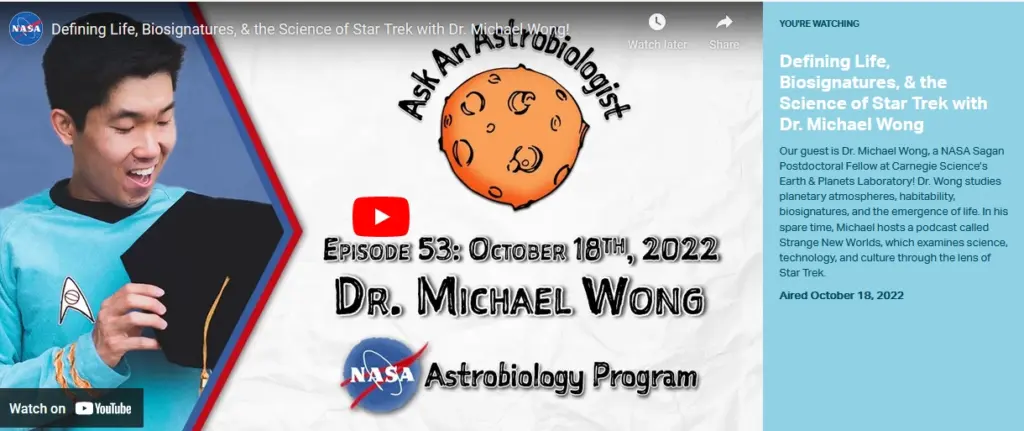News
May 15, 2025
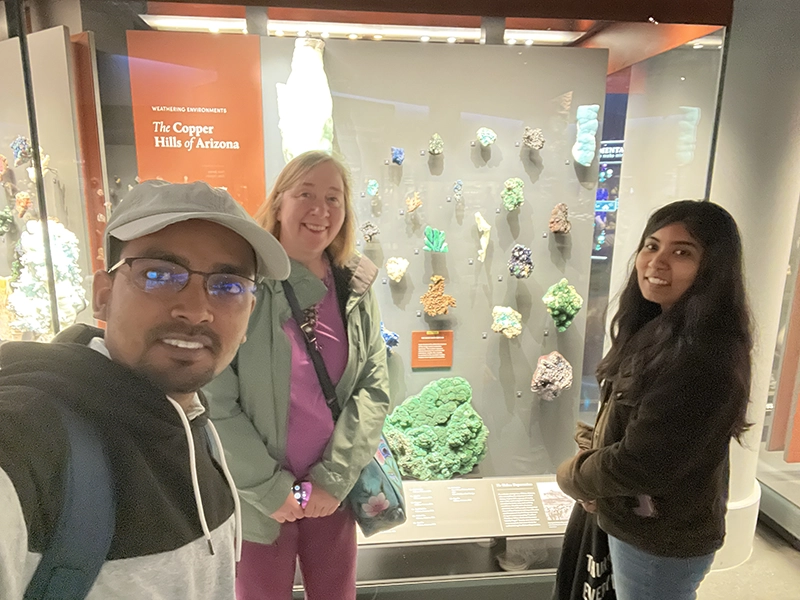
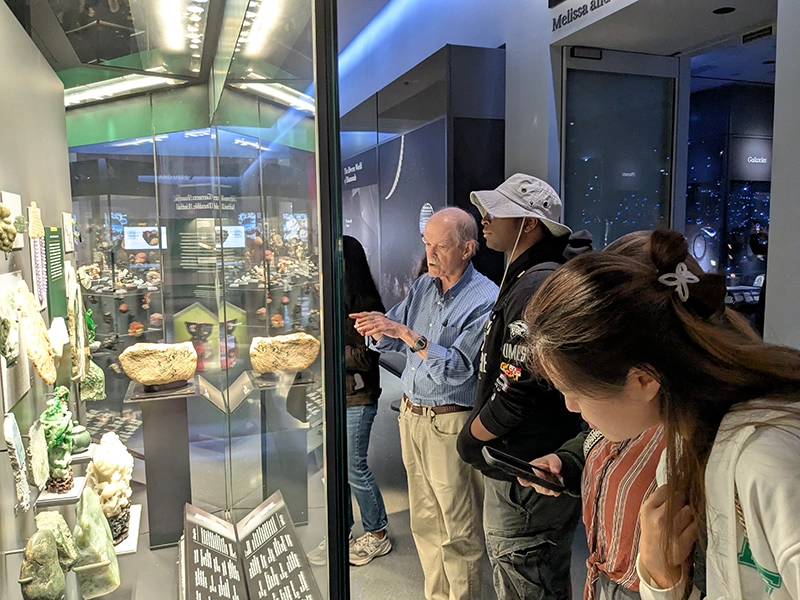
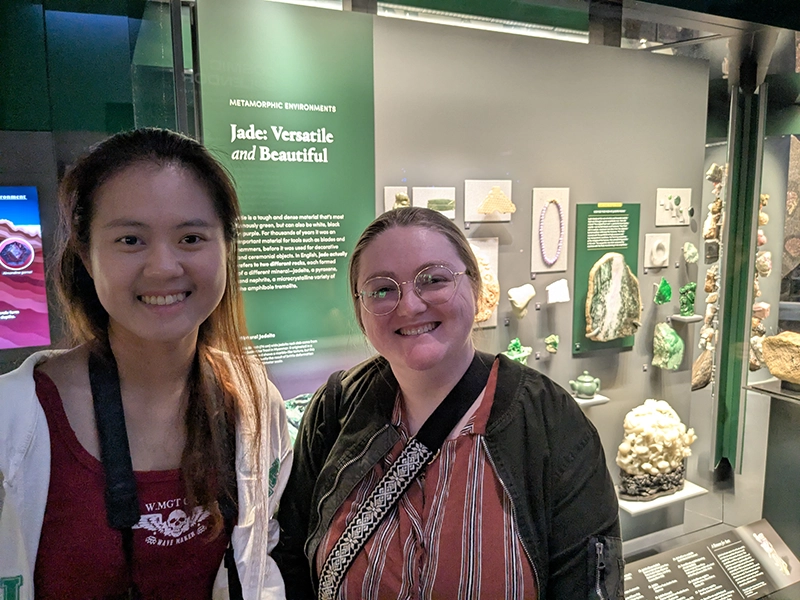
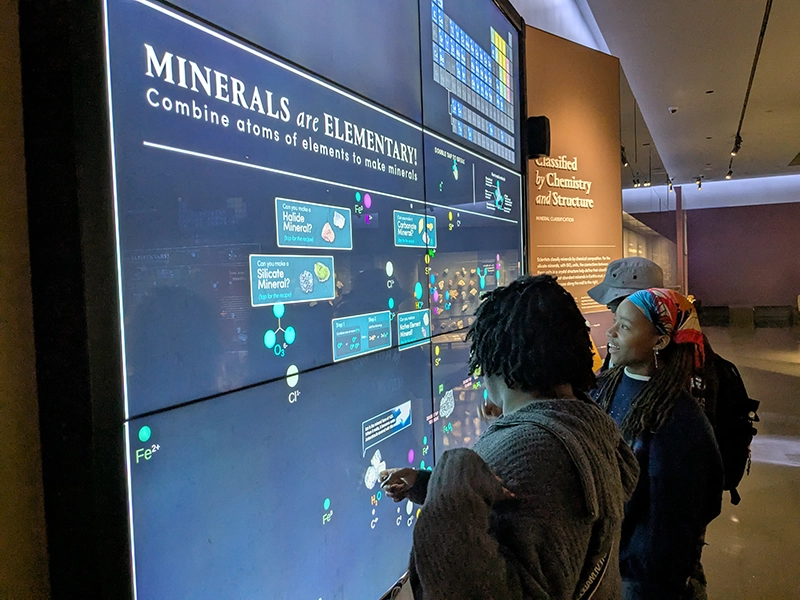
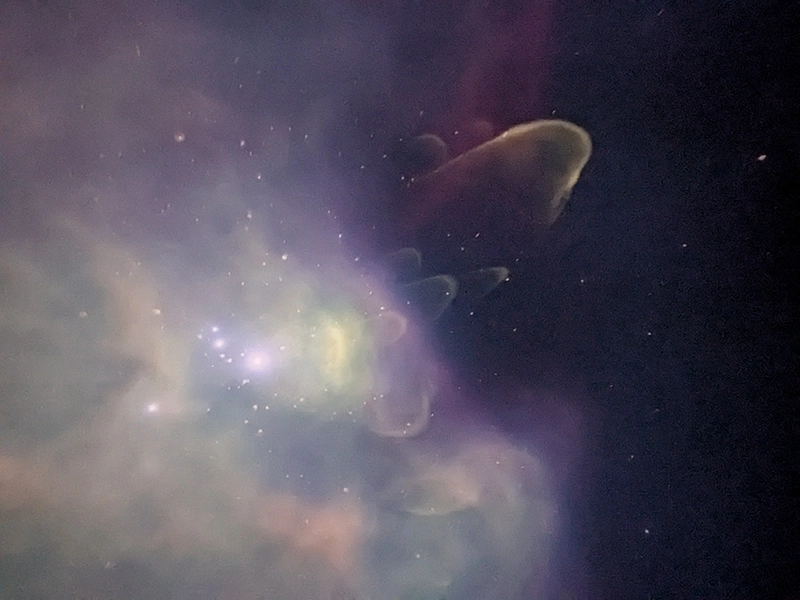
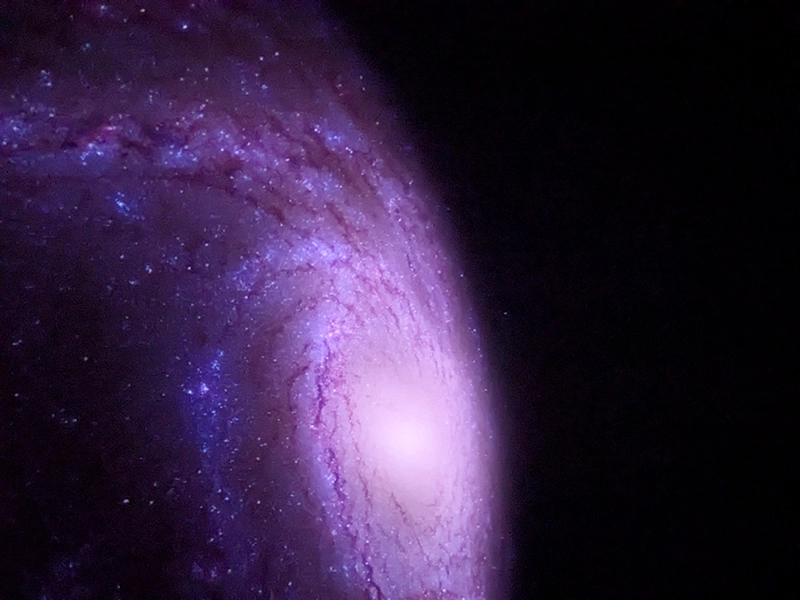
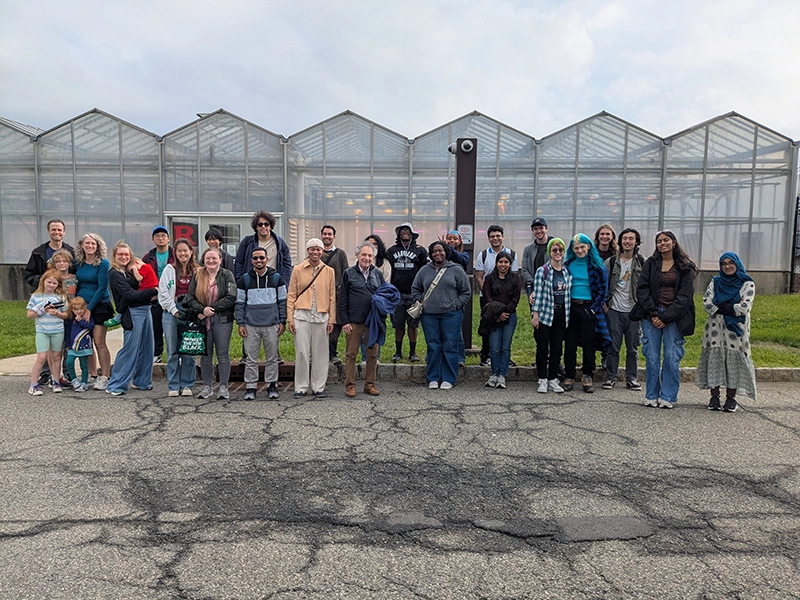
On May 15th, our annual joint ENIGMA, DMCS and EPS field trip was taken to the American Museum of Natural History (AMNH) in New York City. This was the 6th year we were treated to a special guided tour of the Hall of Minerals by George Harlow (Curator, Division of Physical Sciences, AMNH) with a viewing of the Hayden Planetarium Space Show. The special exhibit Garden of Green: Exquisite Jewelry from the Collection of Van Cleef & Arpels was also enjoyed. A bus filled with our students, faculty, staff, and extended Rutgers family relished another fabulous day at the museum!
November 11-12, 2025
ENIGMA PI Paul G. Falkowski participated in The Royal Society Meeting: Chance and purpose in the evolution of biospheres, November 11-12, which was held at The Royal Society, London, UK. The meeting brought together philosophers and scientists from diverse backgrounds to address how stable biospheres evolve: whether they are a result of chance events or instead the inevitable consequence of the evolutionary interplay between the organisms and their environments. The meeting considered Earth history, but also exoplanets and simulated exobiospheres.
April 24, 2025
March 5, 2025
Kevin Peter Hand , ENIGMA collaborator, Planetary Scientist at JPL, and Director Ocean Worlds Lab at the California Institute of Technology presented a special EPS seminar in hybrid format.
Ice Shells as a Lens into the Chemistry and Habitability of Ocean Worlds
February 14, 2025
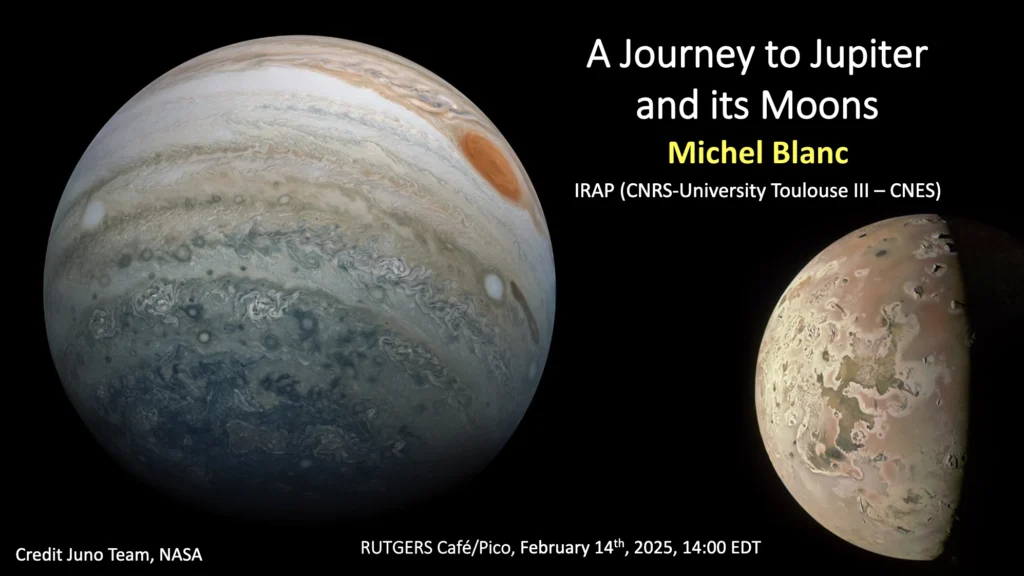
A Journey to Jupiter and its Moons (find pdf here)
November 11, 2024
November 1, 2024
October 14, 2024
September 30, 2024
August 21, 2024
Congratulations to Dr. Jihua Hao (former Rutgers ENIGMA post-doctoral researcher) who was recently awarded the Geochemical Society’s F.W. Clark Award at the 2024 Goldschmidt conference. We are so very proud and delighted for Jihua!
The F.W. Clarke Award honors a single outstanding contribution to geochemistry or cosmochemistry by an early-career scientist.
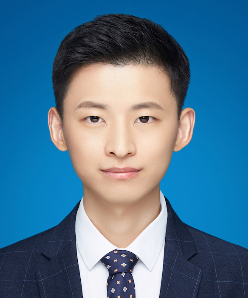
June 10-11, 2024
ENIGMA PI Paul G. Falkowski presented on ENIGMA research at the 2024 International Workshop on Planetary Sciences which took place 10-11 June 2024, at the University of Science and Technology of China, Hefei, Anhui. Title of presentation: The evolution of metabolism: the power supply of life.
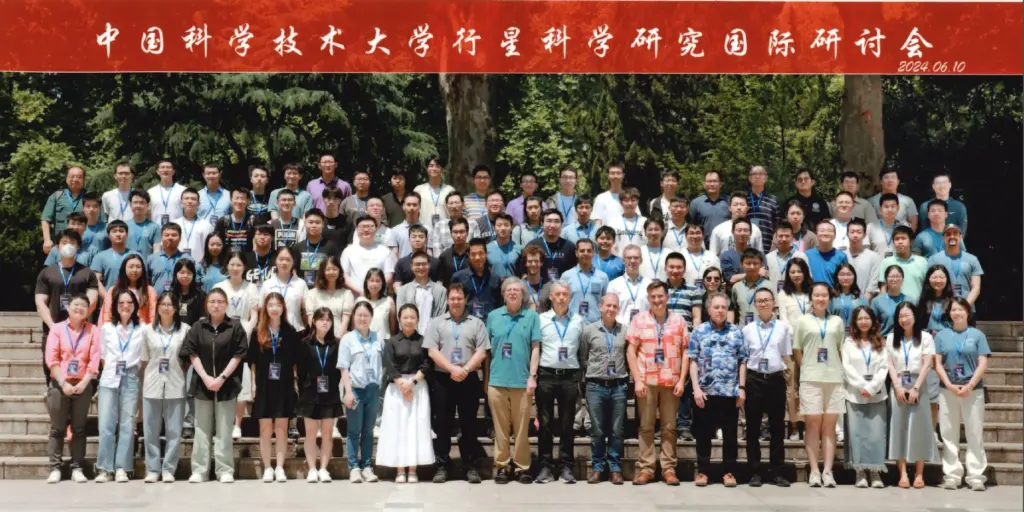
May 9, 2024
On May 9th, a joint ENIGMA, DMCS and EPS field trip was taken to the American Museum of Natural History (AMNH) in New York City. The trip has become an annual event enjoyed by our students, faculty, staff, and extended Rutgers family. The group was treated to a special guided tour of the Hall of Minerals and the just opened Ice Cold exhibit by George Harlow (Curator, Division of Physical Sciences, AMNH) with a viewing of the Hayden Planetarium show World Beyond Earth. A great day at the museum!
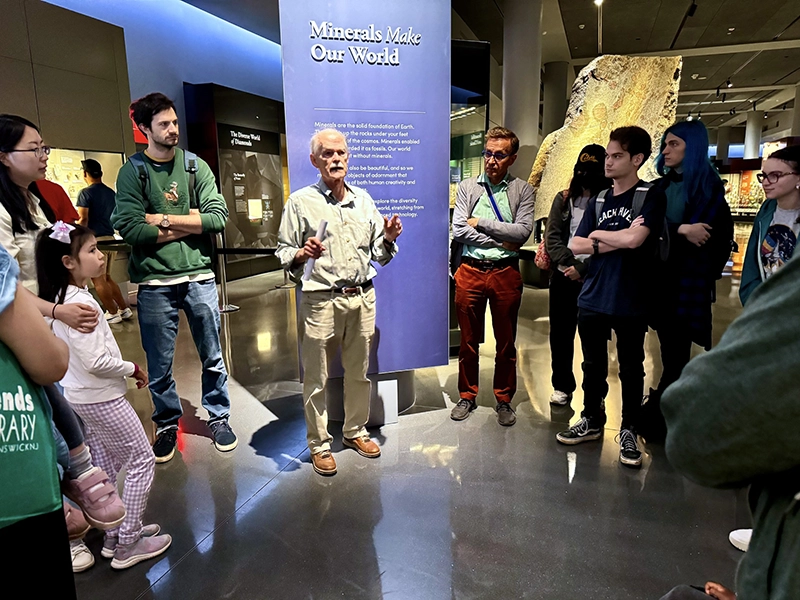
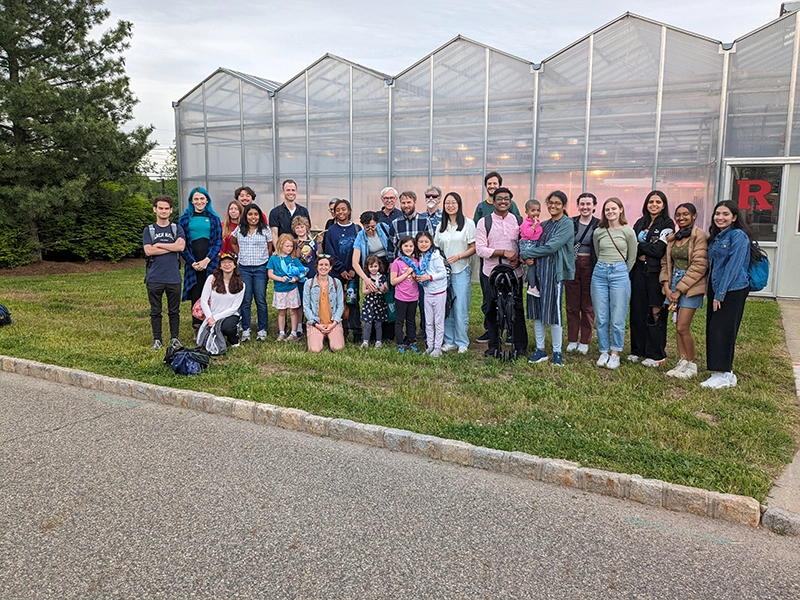
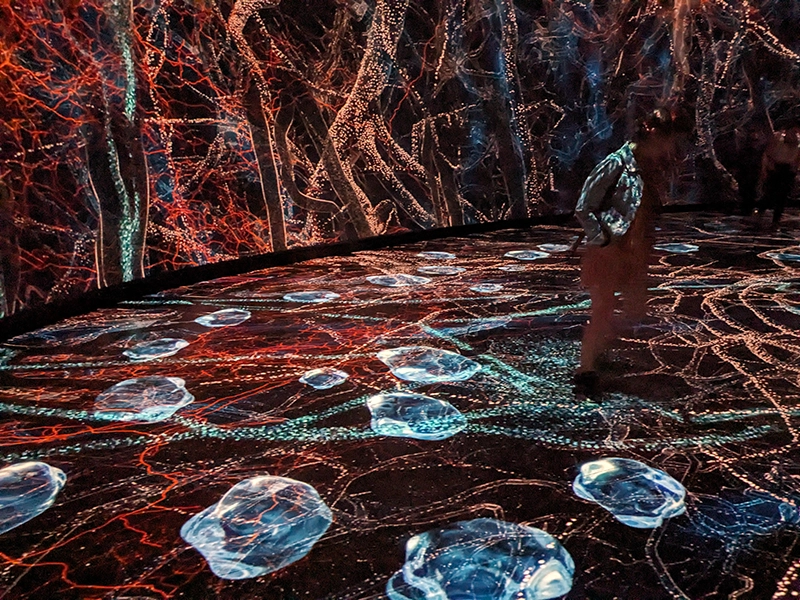
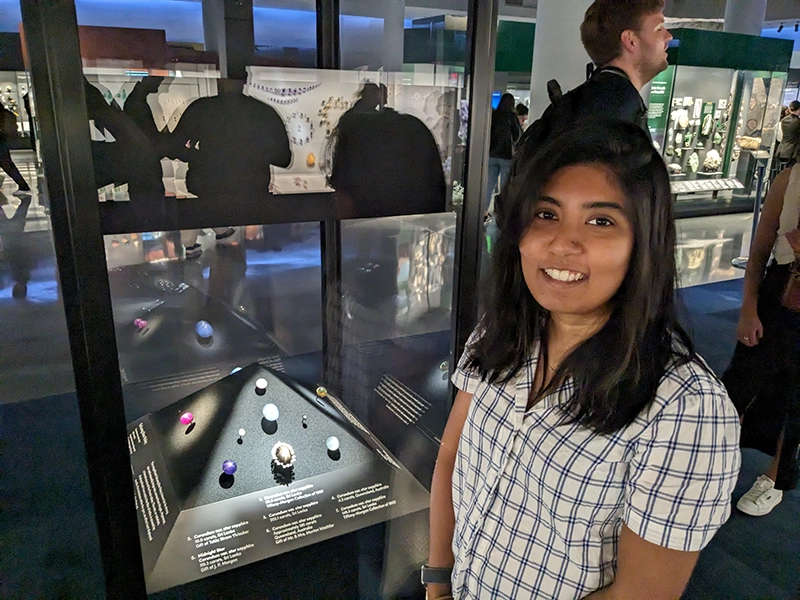
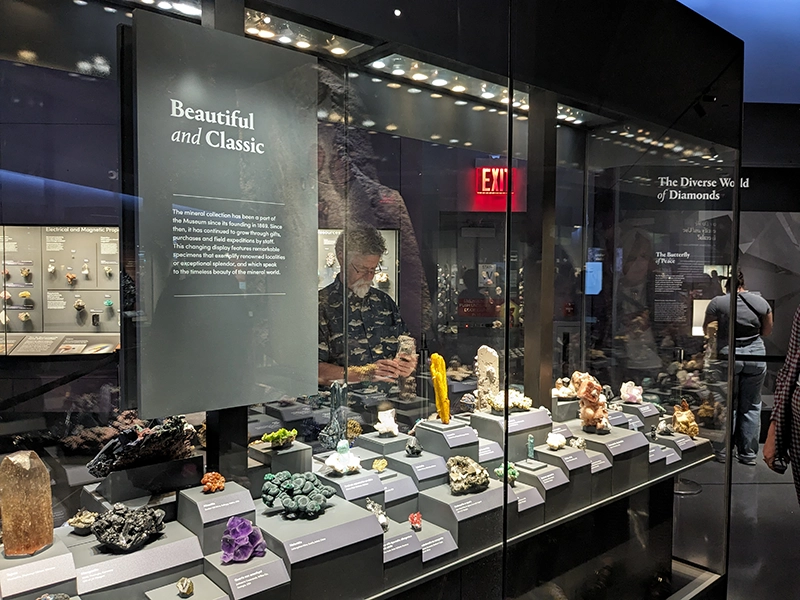
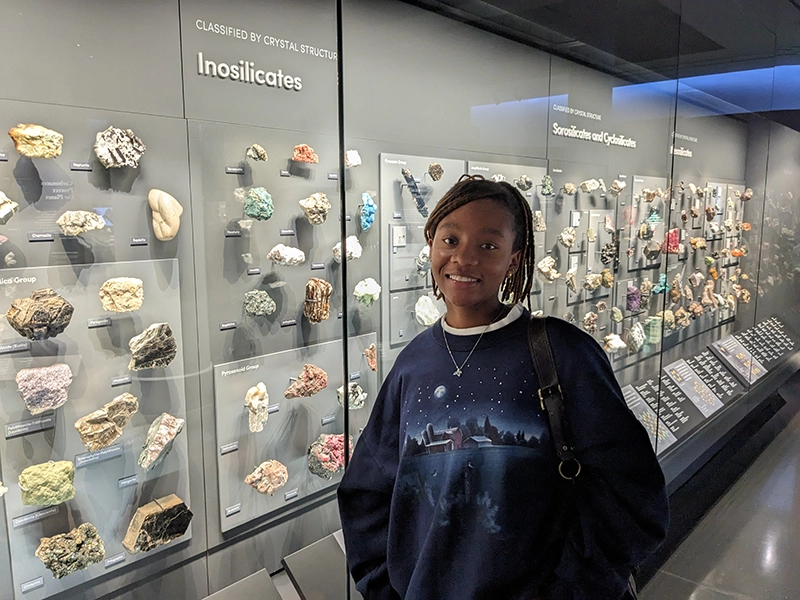
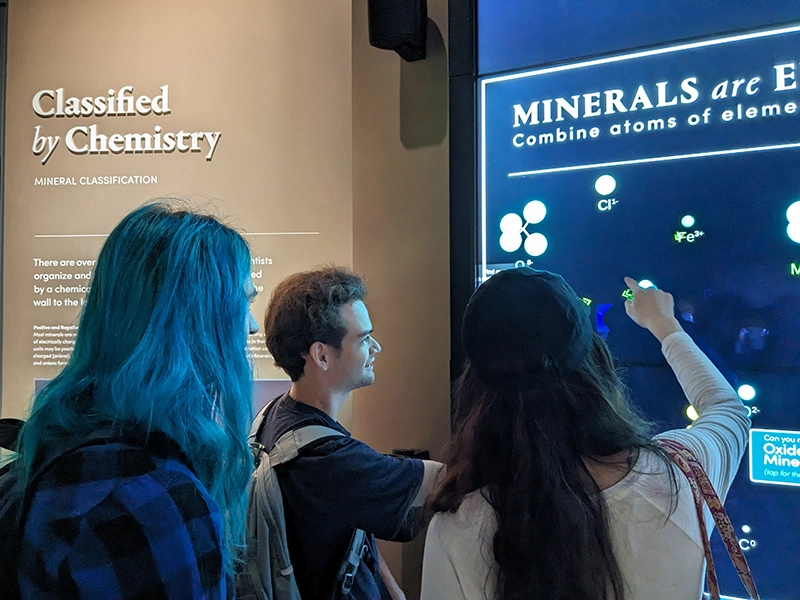
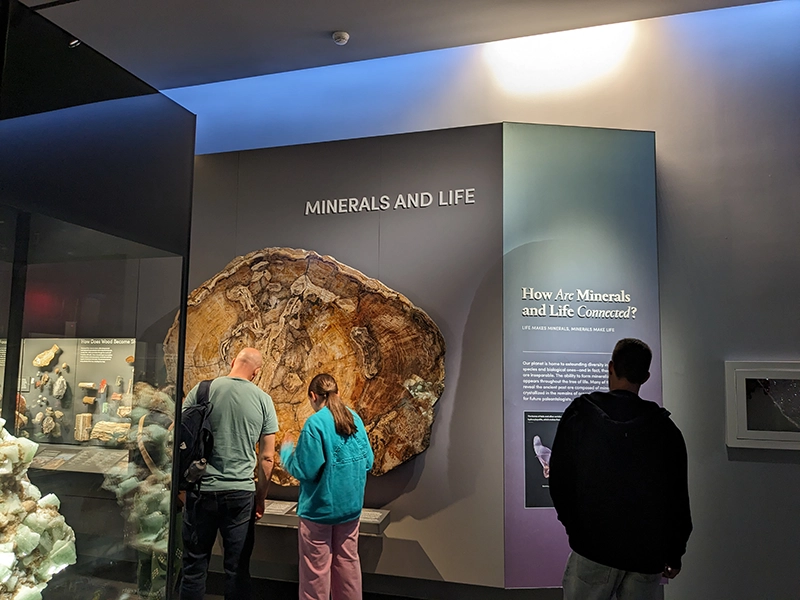
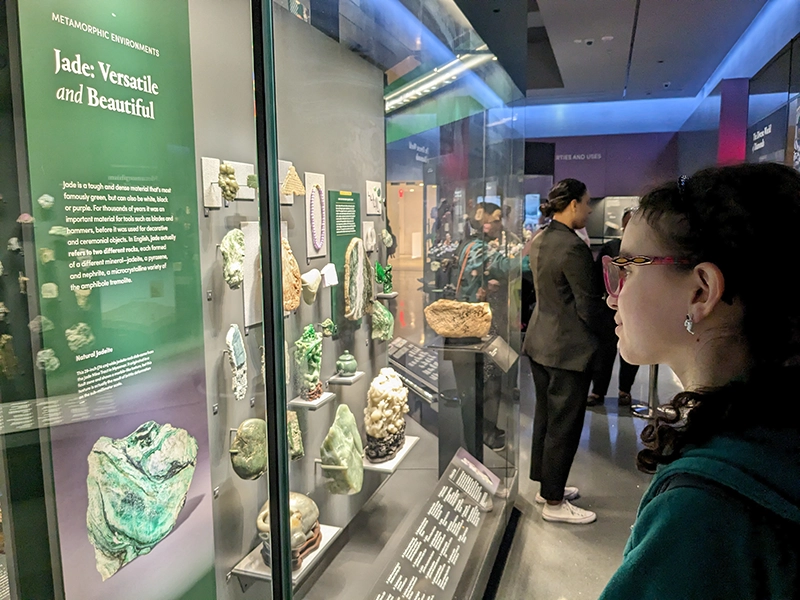
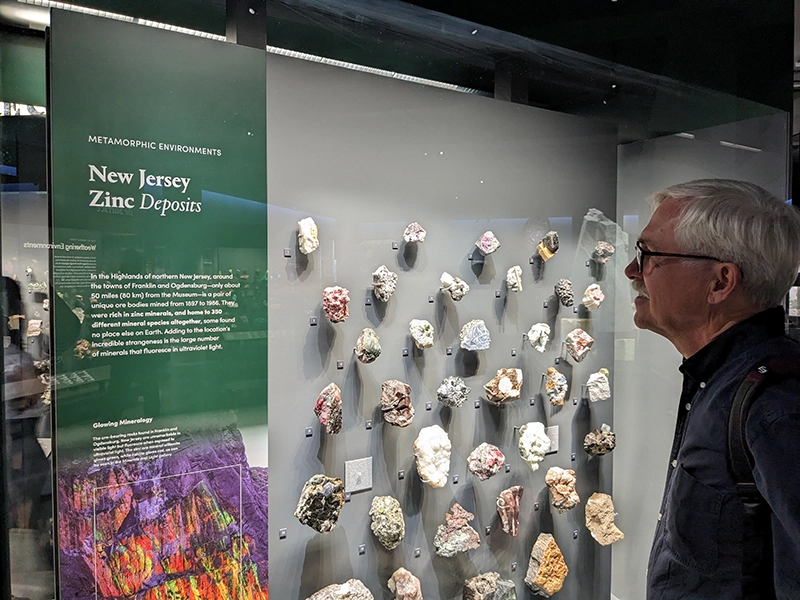
April 1, 2024
March 26, 2024
The entire ENIGMA team is delighted to announce that Jan Siess received his Ph.D. under the direction of ENIGMA CoI Prof. Vikas Nanda. Thesis title: Protein Dynamics And Evolution: A Molecular journey From Prebiotic Peptides To Complex Systems Graduate Program in Quantitative Biomedicine. We wish Jan all the best in his journey in science and life.
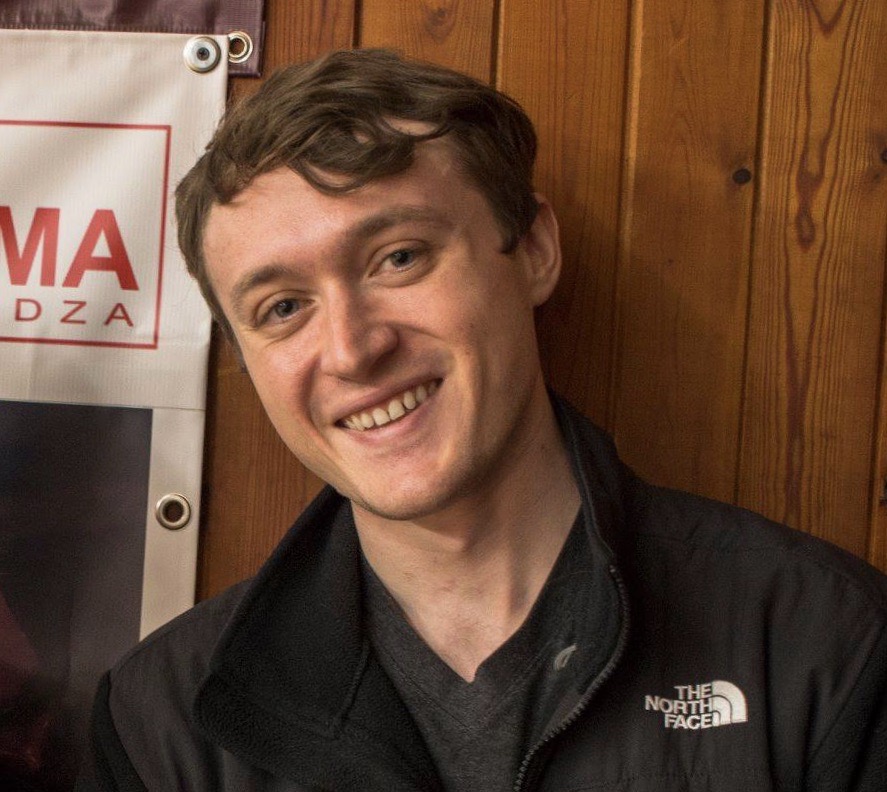
March 18, 2024
March 8, 2024
Mike Wong, a post-doctoral ENIGMA collaborator and astrobiologist/ planetary scientist at Carnegie Science, appeared on Science Friday. Wong talks about what sci-fi films get wrong—and right—about alien planets. With the recent release of the film Dune 2, Wong discussed exoplanets, what Arrakis’ atmosphere is like, and the search for life in the universe. Listen to Science Friday here. Read Transcript here.
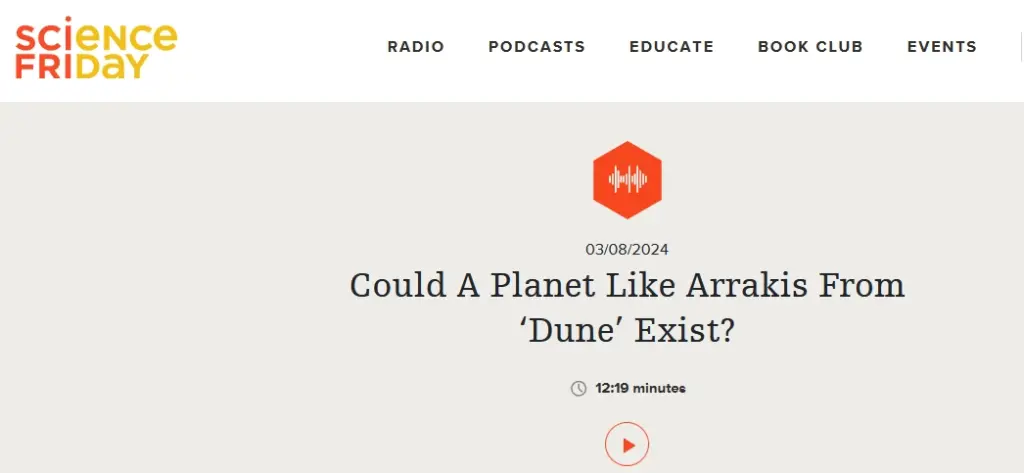
March 4, 2024
January 16, 2024
ENGIMA welcomes new team member, James Reilly, a Rutgers Graduate Student in Quantitative Biomedicine who will be working with Dr. Paul Falkowski and Dr. Vikas Nanda. As part of the ENIGMA project, he is currently studying the role ancient metallopeptides played in the evolution of life, using molecular modelling software to design primordial proteins and characterize their structure, metal binding and catalytic activit.
January 12, 2024
ENIGMA post-doctoral researcher Jennifer Timm participated in the 2-week, virtual Future of the Search for Life science and engineering workshop brought together more than 100 scientists, engineers, and technologists in March and April 2022 to provide their expert opinion on the interconnections between life-detection science and technology. The complete workshop report has been published, “Future of the Search for Life: Workshop Report”, can be read here in Astrobiology.
January 9, 2024
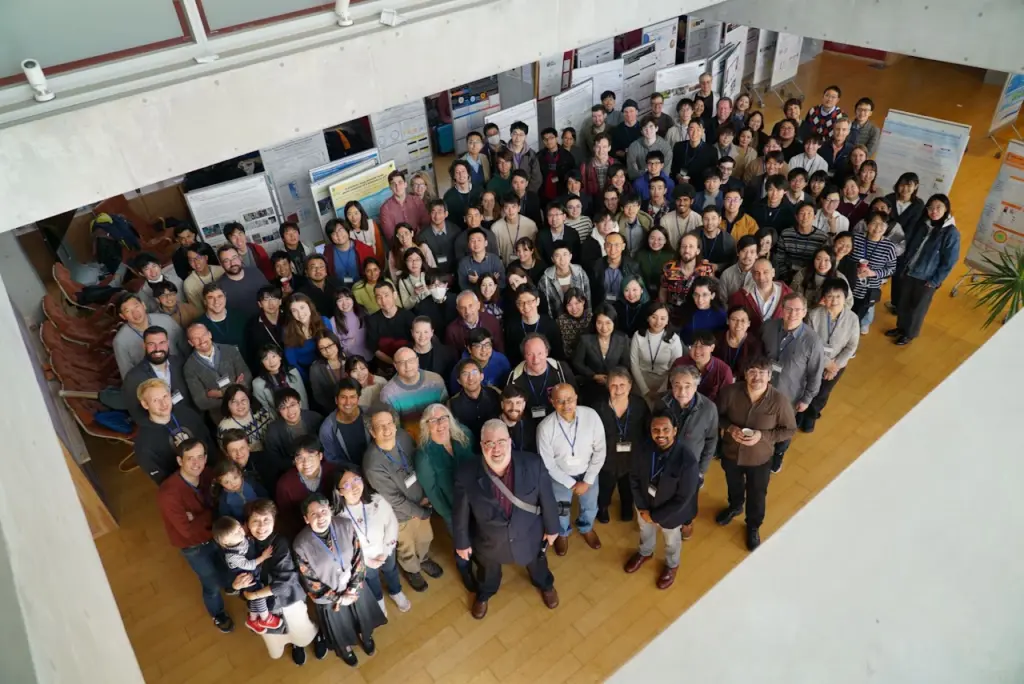
December 11, 2023
Mission to the moon: Rutgers geologist helps NASA plot future Artemis moonwalks
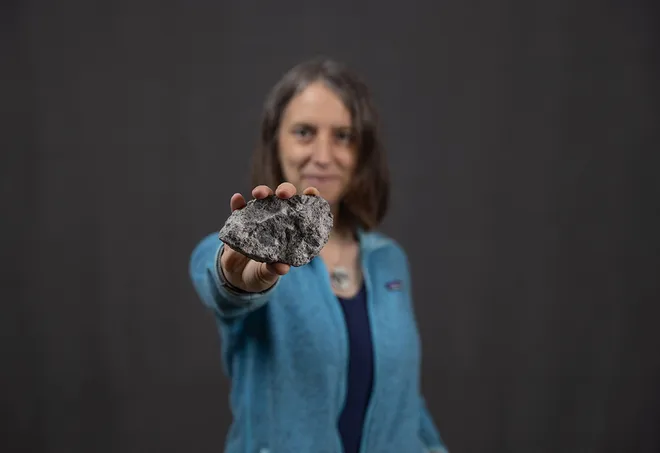
December 4, 2023
Elizabeth Rampe, Scientist, Astromaterials Research & Exploration Science (ARES), NASA, presented an ENIGMA Seminar remotely.
Environments on Early Mars from the Curiosity Rover and Terrestrial Analogue Studies
November 20, 2023
Kristin N. Johnson-Finn, Assistant Professor, Chemistry & Chemical Biology, Rensselaer Polytechnic Institute, presented an ENIGMA Seminar remotely.
Electrochemical Insights on Hydrothermal Organic Chemistry – Next Steps in Electron-Transfer Reactions of Carboxylic Acids
November 6, 2023

October 23, 2023
Prabakaran Ramakrishnan, Postdoctoral Researcher, Biology & Computer Science, Emory University presented an ENIGMA Seminar remotely from Georgia.
Learning the Language of Metagenomes to understand Molecular Function
October 10, 2023
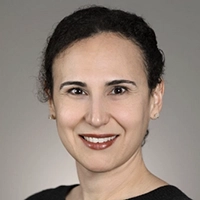
October 7, 2023
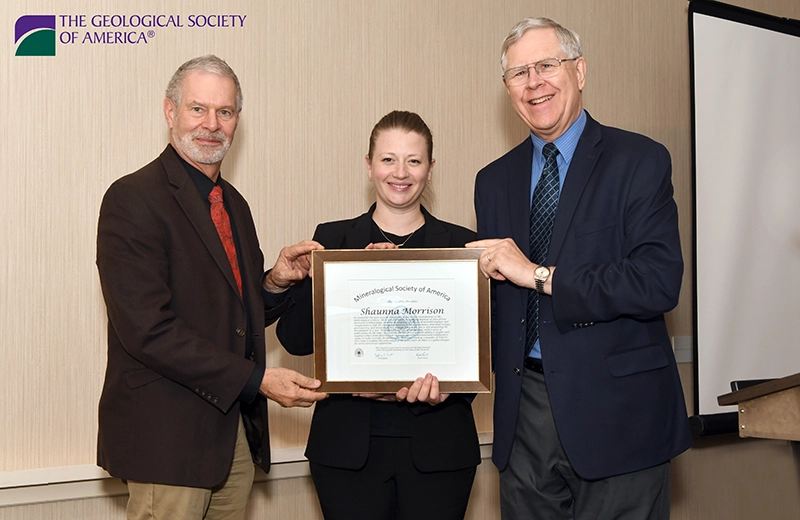
The Mineralogical Society of America (MSA) presented ENIGMA collaborator Shaunna Morrison, a planetary scientist and mineralogist at Carnegie Institute of Science’s Earth and Planets Laboratory (EPL), with the 2022 MSA Award at the Geological Society of America meeting in Pittsburgh. Learn more about Morrison’s outstanding contributions to the science of mineralogy at her research webpage. Congratulations Shaunna!
September 27, 2023
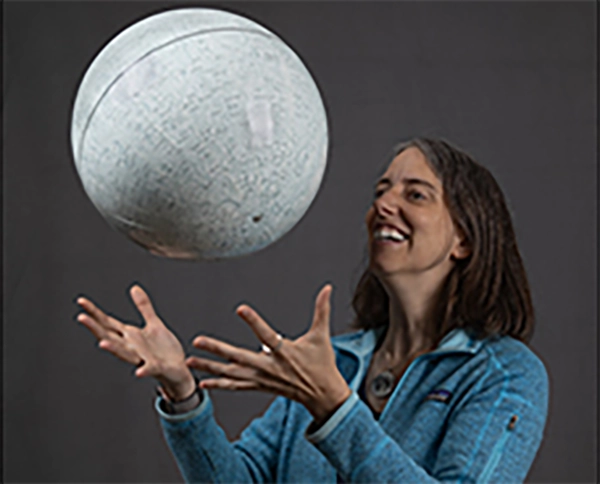
Juliane Gross, a Rutgers professor and ENIGMA Co-Investigator, will serve as a member of the geology team supporting the Artemis III mission, which will land the first woman on the Moon and explore more of the lunar surface than ever before. Read the complete article at Rutgers News.
September 25, 2023
Researchers hope to analyse materials from Mars using program that can detect ‘biosignatures’ of other life forms.
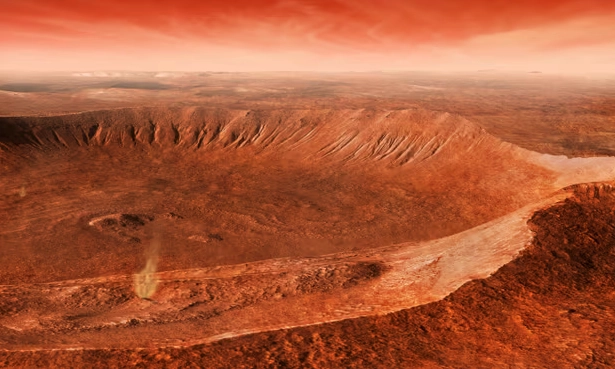
Dr Robert Hazen, ENIGMA CoI and an astrobiologist at the Carnegie Institution for Science in Washington DC and a senior scientist on the project, said the tool had the potential to revolutionise the search for extraterrestrial life and deepen the understanding of the origins and chemistry of life on Earth. Read the complete article at The Guardian.
May 19, 2023
Rutgers ENIGMA team members participated in PCE3 Seminar Series: Jennifer Timm, Postdoctoral Researcher, Environmental and Biological Sciences, and Jan Siess, Graduate Student, Center for the Advanced Biotechnology and Medicine presented their talks. Read more at #23 PCE3 Seminar Series Flyer 23
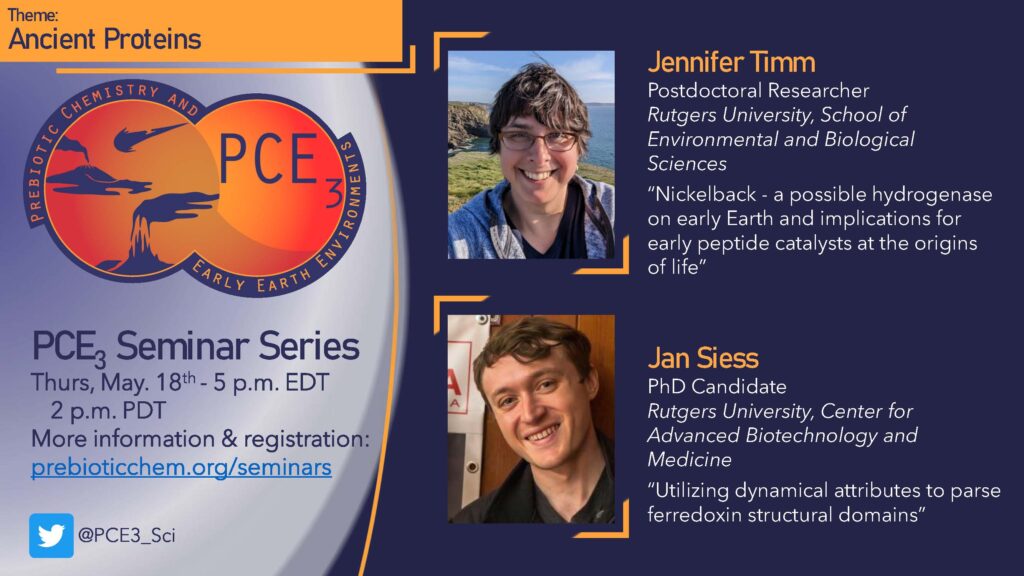
May 11, 2023
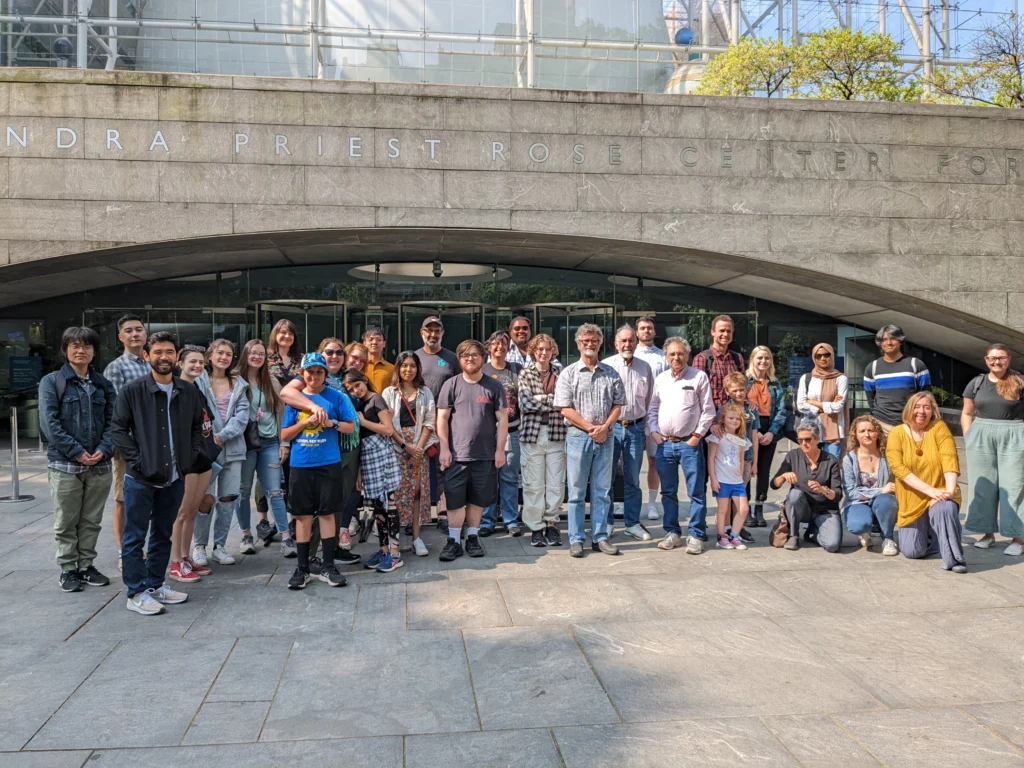
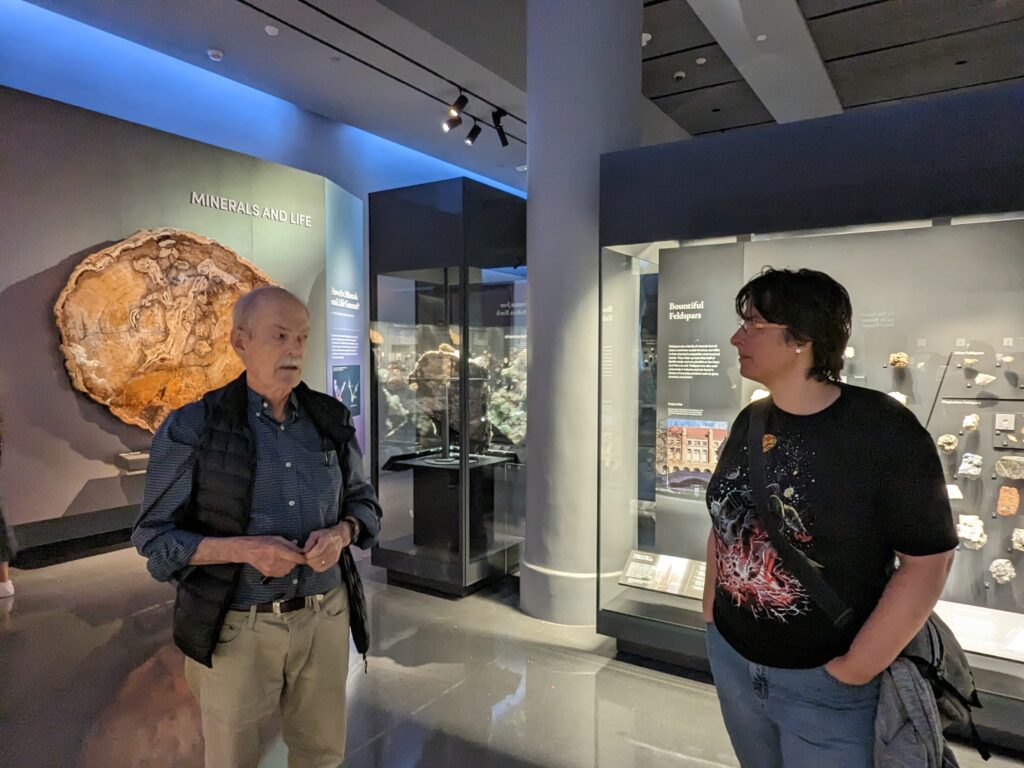
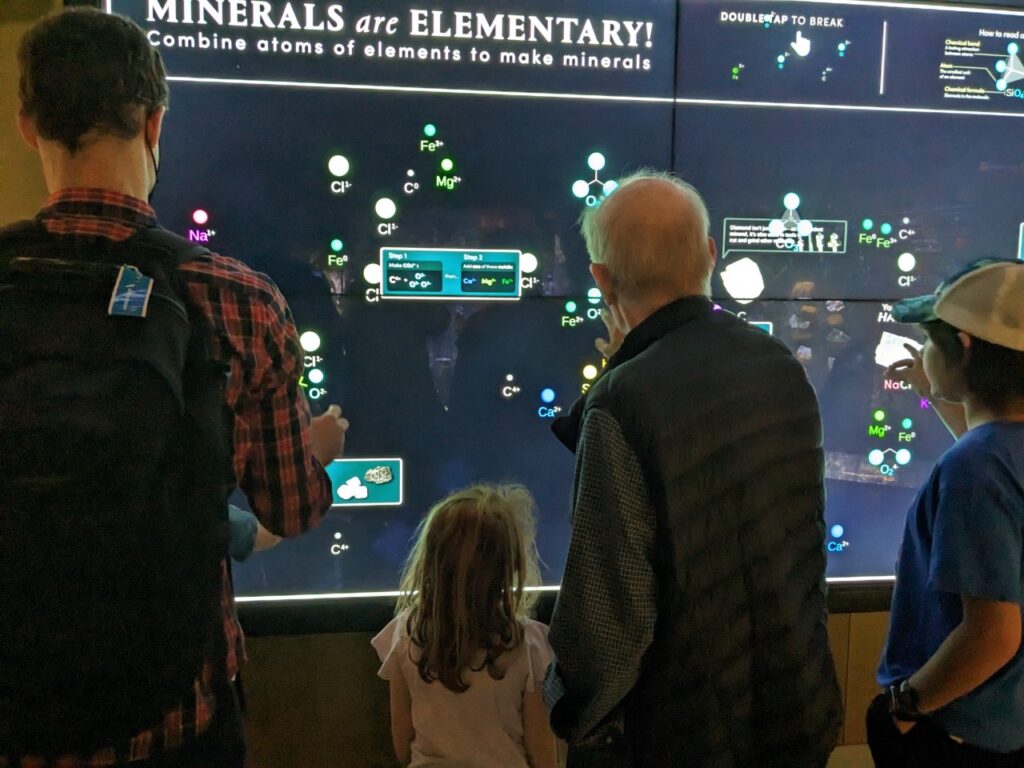
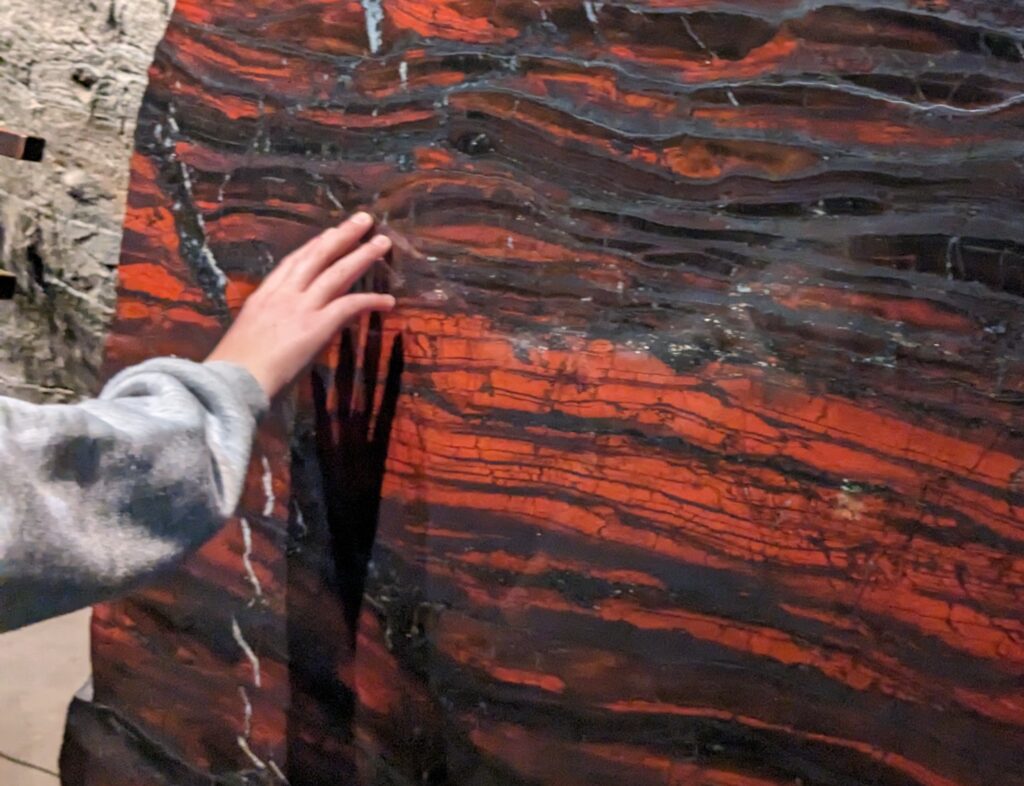
On May 11th, a joint ENIGMA, DMCS and EPS field trip to the American Museum of Natural History (AMNH) in New York City was enjoyed by our students, faculty, and staff. The group was treated to a special guided tour of the Hall of Minerals by George Harlow (Curator, Division of Physical Sciences, AMNH) and a viewing of the Hayden Planetarium show World Beyond Earth.
April 3, 2023
Costantino Vetriani, Professor, Biochemistry & Microbiology, Rutgers University, presented an ENIGMA Seminar in-person.
The Chemosynthetic Microbiome of Deep-sea Hydrothermal Vents across Time and Space
March 20, 2023
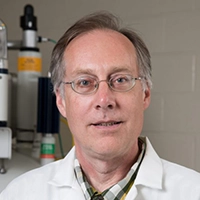
March 10, 2023
Rutgers Scientists Identify Substance that may have Sparked Life on Earth

Caption: A computer rendering of the Nickelback peptide shows the backbone nitrogen atoms (blue) that bond two critical nickel atoms (orange). Scientists who have identified this part of a protein believe it may provide clues to detecting planets on the verge of producing life.
The research, published in Science Advances, has important implications in the search for extraterrestrial life because it gives researchers a new clue to look for, said Vikas Nanda, an ENIGMA team CoI and researcher at the Center for Advanced Biotechnology and Medicine (CABM) at Rutgers. Read the complete article at AAAS/EurekAlert.
March 6, 2023
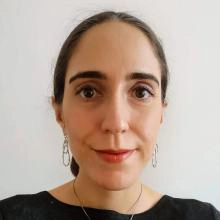
February 15, 2023

February 13, 2023
Unlocking the Secrets of Life through Data Science

Mike Wong (left) and Anirudh Prabhu (right) pose for a photo together
Anirudh Prabhu and Mike Wong use data science to explore the definition of life as we know it (and life as we don’t). Read the complete article at Carnegie Science.
February 6, 2023
Jan Siess, Graduate Fellow, Quantitative Biomedicine, Rutgers University, presented an ENIGMA Seminar in-person/remotely.
Utilizing Dynamical Attributes to Parse Ferredoxin Structural Domains
January 31, 2023
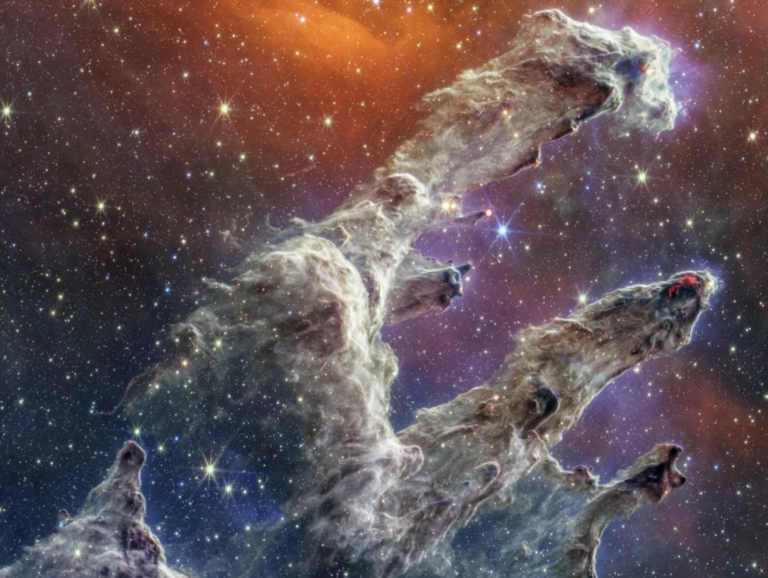
January 27, 2023
Shaunna Morrison Named 2022 Recipient of MSA Award for Outstanding Contributions to Mineralogy
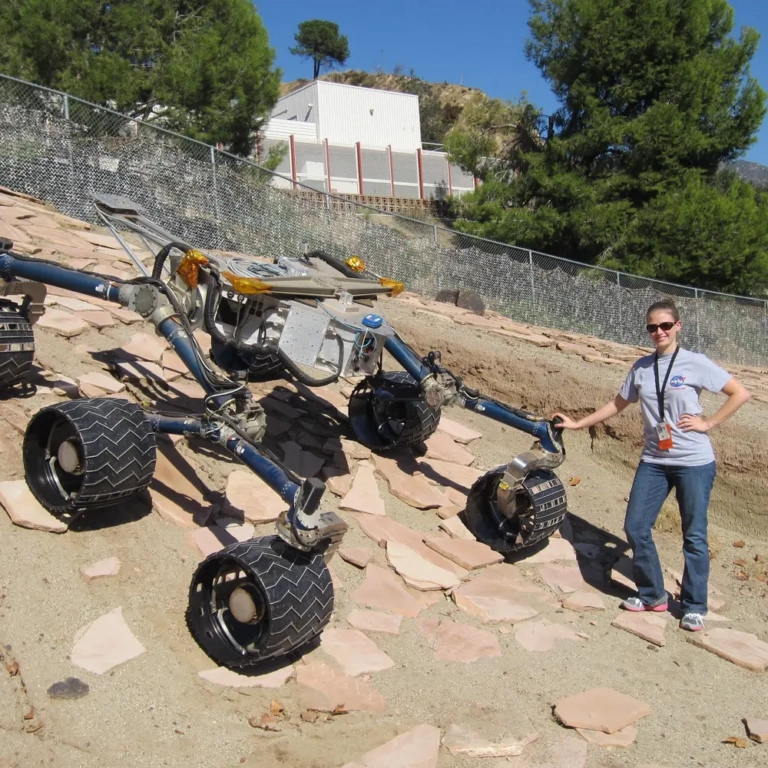
Congratulations! The Mineralogical Society of America (MSA) has named Carnegie’s Earth and Planets Laboratory (EPL) mineralogist and ENIGMA collaborator Shaunna Morrison as the 2022 recipient of the MSA Award. The award recognizes outstanding contributions to the science of mineralogy by early career researchers.
Morrison, a planetary scientist and mineralogist, is known for her work in crystallography, crystal chemistry, and the innovative application of data-driven techniques to better understand planetary histories and the co-evolution of the mineral environment with life on Earth. She is also a Co-Director of Carnegie’s 4D Initiative, a former Project Manager of the Carnegie-led Deep-Time Data Infrastructure (DTDI), and a Co-Investigator on NASA’s Curiosity Mars Rover mission, among other roles. Morrison will be honored at the Geological Society of America meeting in Pittsburgh, PA, USA, in October 2023.
January 14, 2023

Michael Chen, PhD Graduate Program in Oceanography, and Jennifer Timm, Postdoc associate Rutgers University ENIGMA, discuss planetary science and astrobiology while creating a model solar system with small objects with a Fairfield library youth.
December 28, 2022
Shaunna Morrison receives the 2022 Minerals Young Investigator Award.
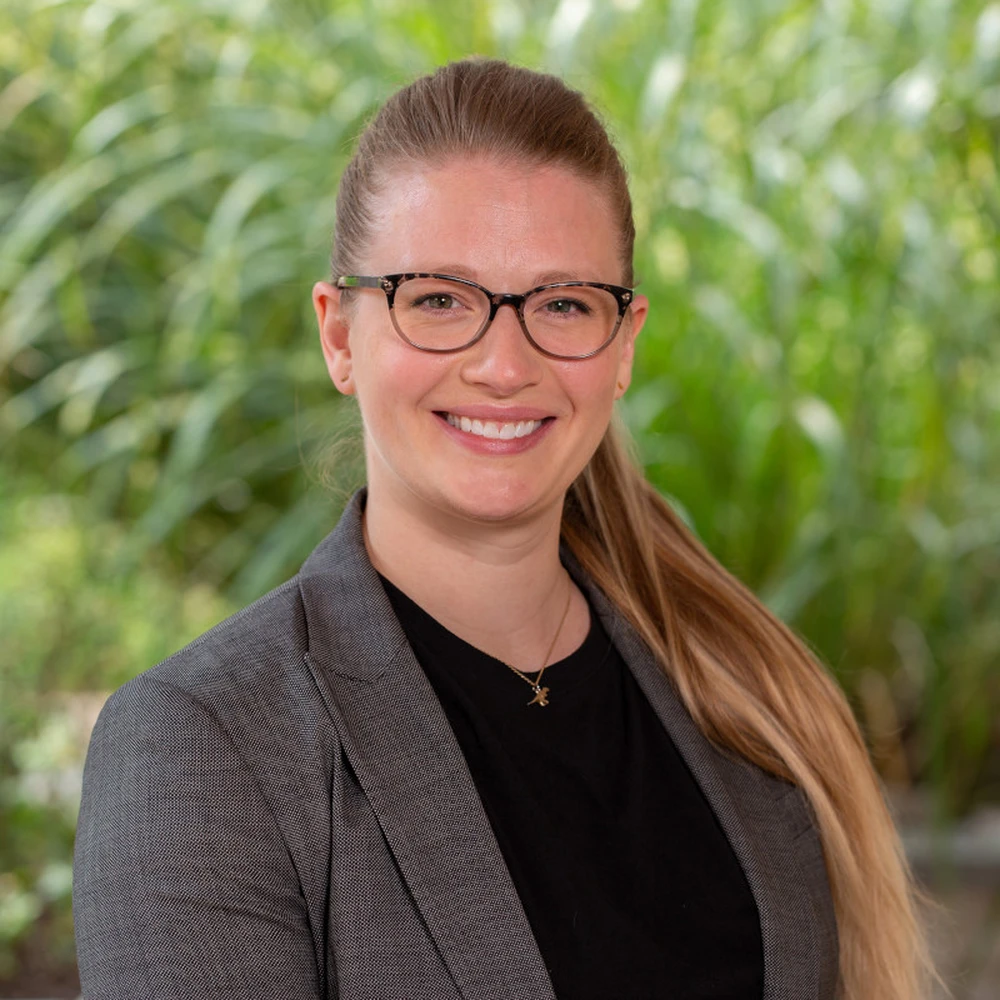
Congratulations!
Carnegie Research Scientist and ENIGMA team collaborator Shaunna Morrison received the 2022 Minerals Young Investigator Award for her work in crystallography, crystal chemistry, and the innovative application of data-driven techniques to better understand planetary histories, including the co-evolution of the mineral environment with life here on Earth. Read the complete article at Carnegie Science and Minerals.
December 12, 2022
December 6, 2022
As part of the ENIGMA program E&O team, a collaboration with Rutgers 4-H Youth Development provides STEM programs at libraries throughout New Jersey taught by faculty, graduate students, and educational professionals. We are continuing this program through June 2023, expecting to reach an additional 12–20 libraries.

Youth create extremophile creatures they designed at a “Life on Other Planets” program at the Edgewater Public Library. Could their creatures survive on another planet?
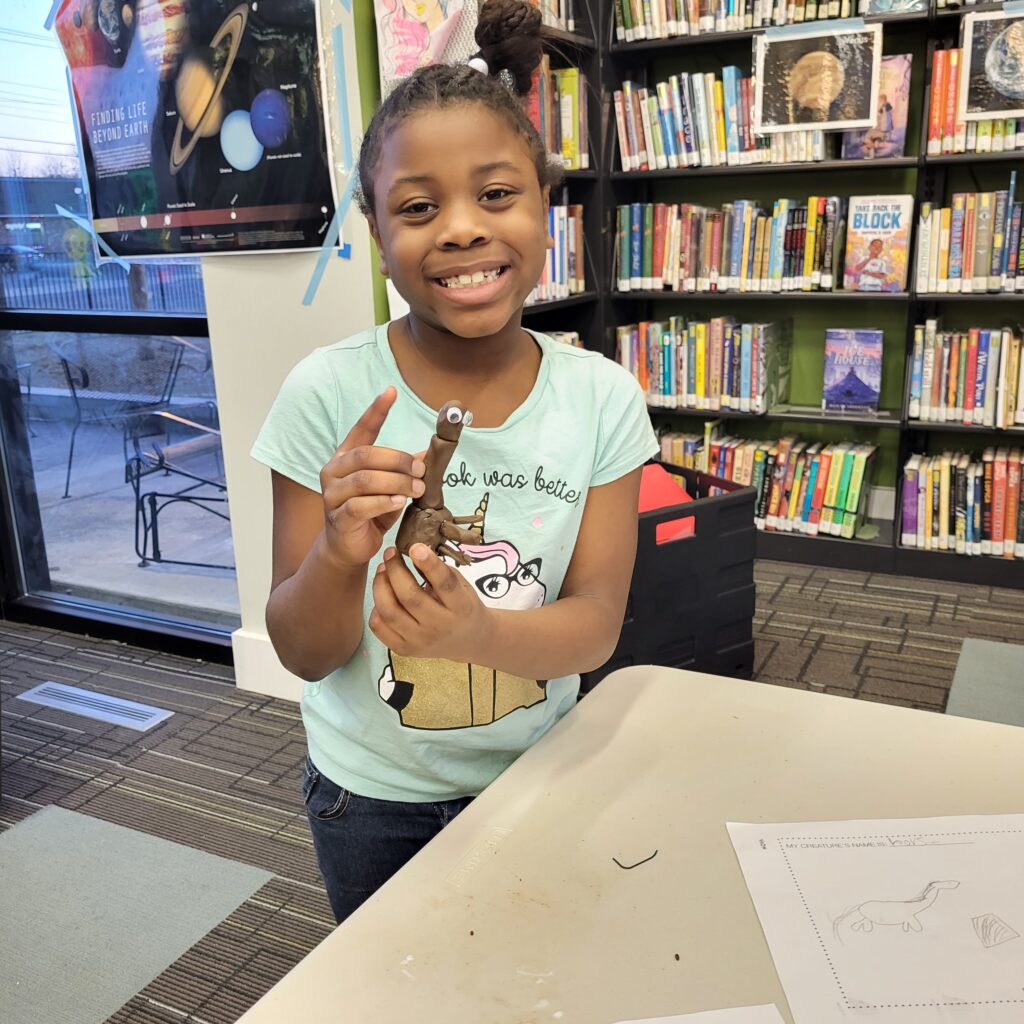
Young people at the Paulsboro Public Library in South Jersey learn about Astrobiology with hands on activities through Rutgers’ DMCS and ENIGMA Library Outreach program. Pictured are youth showcasing an extremophile creature they invented, designed and created based on certain life characteristics that only thrive on a certain planet. After using various craft supplies and household materials to create their creatures, the youth then presented their creatures to their peers explaining what planet their creature may live on and how their creature could survive extreme environments based on specific life conditions.
November 28, 2022
Life as we don’t know it” at the very beginning?
(bioenergetics’ take on emergence-of-life-research)
November 14, 2022
Reinterpreting the Sedimentary Carbon and Sulfur Isotope Records in Light of Links between Earth’s Surface and Iinterior Carbon and Sulfur Cycles
November 7, 2022
Anhuai Lu, Professor, School of Earth & Space Sciences, at Peking University presented a Special ENIGMA Seminar remotely on “Mineral Photoelectron Energy for Prebiotic Synthesis and Microbial Metabolism” . Dr. Lu is a renown scientist in mineralogy and geology and the ENIGMA team was extremely honored for his participation.
Mineral Photoelectron Energy for Prebiotic Synthesis and Microbial Metabolism
October 18, 2022
ENIGMA post-doctoral researcher Michael Wong was a guest on the NASA Ask An Astrobiologist series – “Defining Life, Biosignatures, & the Science of Star Trek with Dr. Michael Wong”. Listen to Episode 53 here.
August 5, 2022

August 4, 2022
NASA-Rutgers ENIGMA Program Hosts Hybrid 2022 Annual Symposium. Read the complete article at Rutgers SEBS and NJAES Newsroom.
August 3, 2022
July 29, 2022
ENGIMA welcomes new team member, Jyotirmoy Mondal, a Rutgers Postdoctoral Researcher who will be using molecular modelling software to design primordial proteins, express, purify and reconstitute them, and characterize their structure, metal binding and catalytic activity as part of the ENIGMA project.
July 20, 2022
Sorting Minerals Differently Could Usher a New Era for Mineralogy
Grouping minerals by how they were formed yields insights into our planet’s evolution across billions of years.
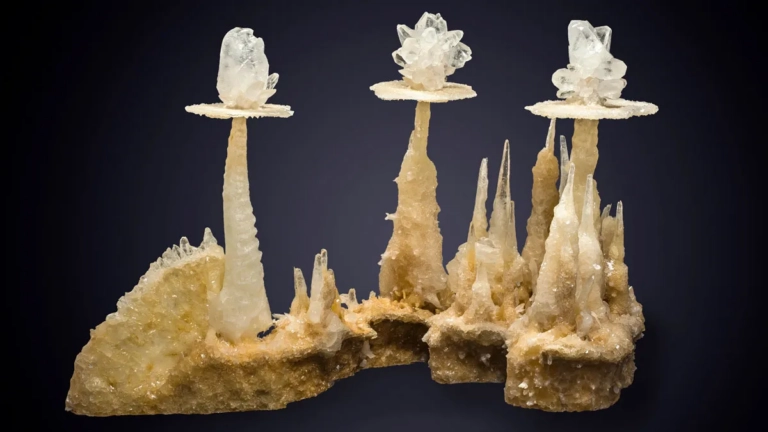
Before Earth existed, there were minerals. Some stood witness as the solar nebula stashed stardust and meteorites coalesced to form our rocky abode. But the centuries-old system for classifying minerals focuses on what they are—missing the stories rocks can tell because of how they formed. Now, researchers have developed a new way to sort minerals—by their origins—and they’ve used this methodology to explore how Earth’s minerals diversified across deep time. Read the complete article at EOS.
July 12, 2022
Corday Selden attended the 2022 Goldschmidt Conference and presented her work on “Experimental investigation of amino acid binding as a mechanism for fractionating metal stable isotopes” in Honolulu, Hawaii.
July 11, 2022
Nathan Yee presented at the 2022 Goldschmidt Conference on “Anoxic photochemical weathering of pyrite on Archean continents” in Honolulu, Hawaii.
July 1, 2022
ENIGMA Scientists Decipher and Catalog the Diverse Origins of Minerals
In twin papers published by American Mineralogist, Carnegie Institution for Science scientists and ENIGMA collaborators, Robert Hazen and Shaunna Morrison detail a novel approach to clustering (lumping) kindred species of minerals together or splitting off new species based on when and how they originated.
The papers detail the origins and diversity of every known mineral on Earth, a landmark body of work that will help reconstruct the history of life on Earth, guide the search for new minerals and ore deposits, predict possible characteristics of future life, and aid the search for habitable planets and extraterrestrial life.
The goal of their efforts: “To understand how the diversity and distribution of minerals have changed through deep time and to propose a system of mineral classification … that reflects mineral origins in the context of evolving terrestrial worlds.”
“This work fundamentally changes our view of the diversity of minerals on the planet,” says Dr. Hazen.
- Hazen, R. M., & Morrison, S. M. (2022). On the paragenetic modes of minerals: A mineral evolution perspective. American Mineralogist, 107(7), 1262-1287. DOI: 10.2138/am-2022-8099
- Hazen, R. M., Morrison, S. M., Krivovichev, S. V., & Downs, R. T. (2022). Lumping and splitting: Toward a classification of mineral natural kinds. American Mineralogist, 107(7), 1288-1301. DOI: 10.2138/am-2022-8105
June 14, 2022
ENGIMA welcomes new team member, Prabakaran Ramakrishnan, a Rutgers Postdoctoral Researcher who will be working on developing deep-learning tools to profile metagenomes as part of the ENIGMA project. Prabakaran is curious about the evolution of protein as a “nanomachine” and the unseen world of host-microbe communications.
June 9, 2022
May 17, 2022
May 10-11, 2022
The Rutgers-NASA ENIGMA program held its 5th annual symposium, hosted at the Center for Advanced Biotechnology and Medicine (CABM) and on Zoom, for a two-day hybrid event, May 10-11th. Both in-person and virtual presentations by distinguished speakers and ENIGMA research members informed astrobiological research that aims to help us to better understand the origins and evolution of life.
Many thanks to those that travelled from afar to be with us – our speakers, ENIGMA team of co-investigators, collaborators, post-docs, graduate students, staff, and undergraduates for a great two-day event.. Program pamphlet can be found here.
Our multi-themed integrated science presentations and discussions were recorded and can be found on the ENIGMA YouTube Channel here.
April 19, 2022

In the Falkowski Lab, Fehon is observing a dense culture of phytoplankton grown for his experiments.
Delighted to announce that our very own Nolan Fehon has been awarded this year’s undergraduate Cook Community Leadership Award. During his time at Rutgers Nolan has made sustainability, climate change and environmental activism his passion and his mission. Nolan also regularly wrote a Climate column for the Daily Targum to share his experiences with Rutgers students and inspire others to pick up the mantle. Read more at SEBS Newsroom.
March 4, 2022
NASA Studies ‘New’ 50-Year-Old Lunar Sample to Prep for Return to Moon

NASA thinks 50 years is the right amount of time as it begins tapping into one of the last unopened, Apollo-era lunar samples to learn more about the Moon and prepare for a return to its surface.
ENIGMA Collaborator Professor Juliane Gross shares news from NASA’s Johnson Space Center in Houston by the Astromaterials Research and Exploration Science Division (ARES) as she helps NASA open Apollo 17 core samples. Read the complete article at NASA’s featured news webpage.
February 21, 2022
Nathan Yee presented on ” Geomicrobiology of Assimilatory Sulfate Reduction” at The University of Tennessee, Knoxville.
February 7, 2022
Post-doc Jennifer Timm presented an ENIGMA Seminar remotely on “Small Peptide Catalysts and How to Find Them.”
January 25, 2022
ENIGMA research scientist Bob Hazen of Earth and Planets Laboratory of the Carnegie Institution for Science has a podcast on the Evolution of Minerals. Listen to the podcast at Geology Bites here.

(Note – playing the podcast is not supported on Internet Explorer; please use any other browser, or listen on Spotify, Apple Podcasts, etc.) Geology Bites Transcript here.
January 24, 2022
Post-doc Kenneth McGuinness presented an ENIGMA Seminar remotely on “Evaluating Mineral Lattices as Evolutionary Proxies for Metalloprotein Evolution.”
January 14, 2022
New Study Sheds Light on Origins of Life on Earth
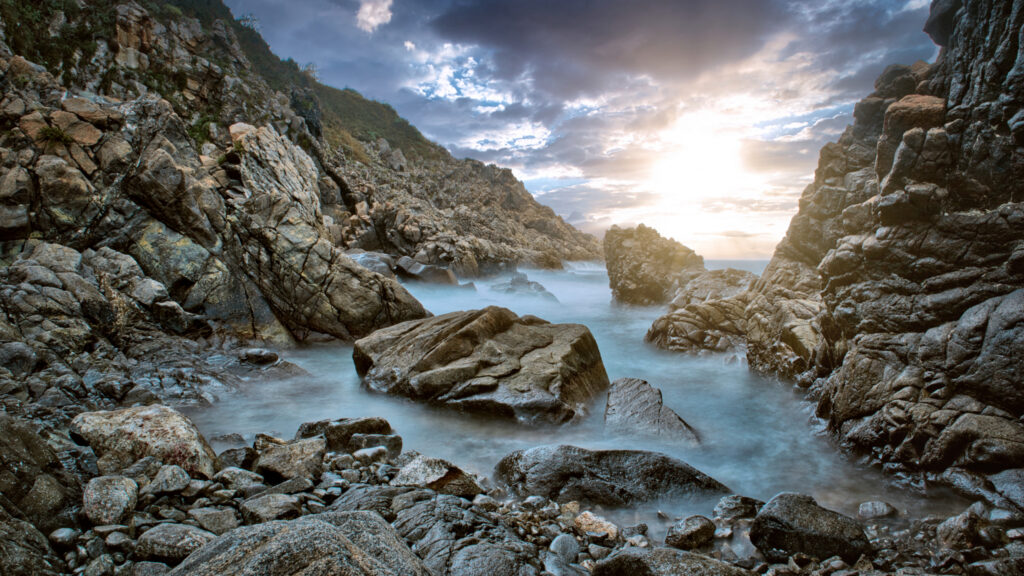
Addressing one of the most profoundly unanswered questions in biology, a Rutgers-led team has discovered the structures of proteins that may be responsible for the origins of life in the primordial soup of ancient Earth.
The study appears in the journal Science Advances.
The researchers explored how primitive life may have originated on our planet from simple, non-living materials. They asked what properties define life as we know it and concluded that anything alive would have needed to collect and use energy, from sources such as the Sun or hydrothermal vents.
In molecular terms, this would mean that the ability to shuffle electrons was paramount to life. Since the best elements for electron transfer are metals (think standard electrical wires) and most biological activities are carried out by proteins, the researchers decided to explore the combination of the two — that is, proteins that bind metals. Read more at Rutgers Today.
December 13, 2021
ENGIMA welcomes new team member, Michael L. Wong, a Carnegie Institution for Science’s Postdoctoral Fellow in the Earth & Planets Laboratory who will be working on planetary atmospheres, habitability, biosignatures, and the emergence of life research.
December 2, 2021
Several ENIGMA collaborators participated in the 2021 Società Geologica Italiana webinar series on geobiology and their talks are on the society’s YouTube.
Donato Giovannelli on “Subsurface life can impact volatile cycling in subduction zones”
Bob Hazen on “The co-evolution of life and rocks: Visualizing 4.5 billion years of Earth history”
Paul Falkowski on “Origins of Oxidoreductases”
November 22, 2021
Katherine Bermingham, Rutgers Earth & Planetary Sciences, presented an ENIGMA Seminar remotely on “The Building Blocks of the Solar System and Earth.”
November 16, 2021
ENIGMA Co-Investigator and Carnegie mineralogist Robert Hazen—who advanced the concept that Earth’s geology was shaped by the rise and sustenance of life—was elected last month as a fellow of the International Society for the Study of the Origin of Life – The International Astrobiology Society.
It is the only professional society dedicated to origins research and its 500 members represent disciplines ranging from molecular biology to astronomy. Fellows are selected for their “exceptional and sustained contributions” to the field.
Hazen pioneered the concept of mineral evolution—linking an explosion in mineral diversity to the rise of life on Earth—and developed the idea of mineral ecology—which analyzes the spatial distribution of the planet’s minerals to predict those that remain undiscovered and to assert Earth’s mineralogical distinctiveness in the cosmos. Read more at the Carnegie Science website.
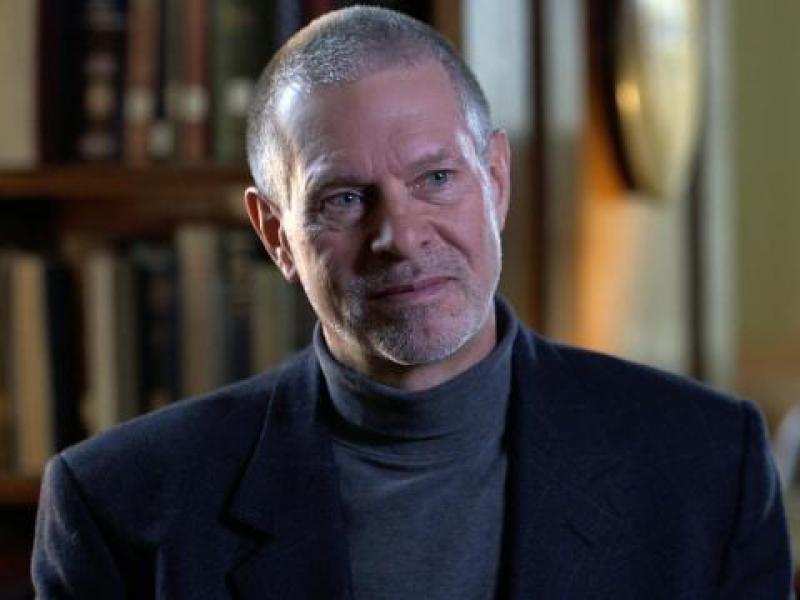
Novemeber 15, 2021
Geo-informatics Scientist, Anirudh Prabhu, ENIGMA collaborator from the Earth and Planets Laboratory, Carnegie Institution for Science, presented an ENIGMA Seminar remotely on “Pushing the Boundaries with (and of)…Data Science.”
November 8, 2021
Post-doc Saroj Poudel presented an ENIGMA Seminar remotely on “Deep Time Evolutionary Inference using both Sequence and Structural Information of the Protein.”
October 15, 2021
Check out NASA Astrobiology Graphic Histories. A new Japanese translation of issue #7 of the graphic novel series Astrobiology, created and illustrated by Dr. Aaron Gronstal. You can download all the issues of the Astrobiology Graphic History series, as well as the Astrobiology Coloring Pages.

October 6, 2021
Juliane Gross, ENIGMA collaborator from Rutgers Earth & Planetary Sciences, presented a Rutgers EPS Colloquium on “From Apollo to Artemis and Beyond: A future as bright as the Moon.”
September 27, 2021
Post-doc Adrienne Hoarfrost will be starting a new adventure as she is leaving Rutgers to join the NASA Biological and Physical Sciences division at NASA Ames.
September 20, 2021
ENIGMA team member and NASA Postdoctoral Program Adrienne Hoarfrost presented an ENIGMA Seminar virtually on “Empowering AI-Driven Insights into Biological Complexity – for life on Earth, in space, and in our search for life on other planets”.
September 15, 2021
Paul Falkowski presented a Rutgers Mathematical Physics lecture on “Light to Life on Earth”. Abstract: The origin of life is the black hole of biology. All life on Earth is driven by the conversion of photons to chemical bond energy. Amazingly, we don’t understand that process. In this lecture, I will examine the bio/geophysics of oxygenic photosynthesis Earth, and how it came to be the force of life for all of us animals.
September 13, 2021
ENIGMA collaborator Kevin Hand talked about what life might look like in space. Check out the NAS program Science & Entertainment Exchange #AskAScientist series.
September 3, 2021
Recent Ph.D. Ashley Murphy, is departing the ENIGMA team for new adventures as a post-doctoral research scientist under the advisement of Dr. R. Aileen Yingst at the Planetary Science Institute, where she is a member of the Mars 2020 SHERLOC instrument team.
September 1, 2021
ENGIMA welcomes new team members:
Anirudh Prabhu, Ph.D. joins us as a Geo-informatics Scientist in the Earth and Planets Laboratory at the Carnegie Institution for Science to work in data science and x-informatics.
Jan Siess joins us a graduate student in Rutgers Quantitative Biomedicine program working in the lab of Dr. Vikas Nanda. He is interested in the design and evolution of metalloproteins.
August 20, 2021
Congratulating to Ashley Murphy on the successful defense of her Ph.D. dissertation on “Characterization of Stromatolitic Biosignatures After Secondary Dolomitization”!
August 5-6, 2021
ENIGMA team member and NASA Postdoctoral Program Fellow Saroj Poudel presented virtually “De Novo Design of a Minimal Catalytic Di-Nickel Peptide Capable of Sustained Hydrogen Evolution” at Astrobiology and Life Research. Congratulations to Saroj for winning the Best Presentation Award!
July 20, 2021
Bob Hazen gave a plenary lecture for the Earth Science Information Partners Winter 2021 virtual meeting titled “Mineral Informatics: Analysis, Visualization, and the Legacy of Peter Fox” crediting ENIGMA.
July 16, 2021
Orion Farr is currently in France at the Aix-Marseille University for his Ph.D., where he is investigating the comparative redox chemistry of catalytic minerals and primitive enzymes to reveal the mysterious origins of metabolism.
July 15, 2021
July 4-9, 2021
ENIGMA team member and NASA Postdoctoral Program Fellow Saroj Poudel presented virtually “Nitrogenase Diversity through Time and Space” at the Goldschmidt Conference 2021.
July 4-9, 2021
Post-doc Jennifer Timm presented virtually “Reconstructing a Potential Primordial Hydrogenase” at the Goldschmidt Conference 2021. Find recording here.
July 2, 2021
June 16, 2021
Delighted to share that Douglas H. Pike successfully defended his Ph.D. in Quantitative Biology. Title: Computational Sequence and Structure Design of Cofactor Binding Proteins. Congratulations!
June 8-9, 2021
Rutgers 4th Annual ENIGMA Astrobiology Symposium took place virtually on June 8th and 9th with international participation amongst our team of scientists and invited external speakers. Thank you to our distinguished speakers, ENIGMA team of co-investigators, collaborators, post-docs, graduate students, staff, and undergraduates for a great two-day event. Program pamphlet can be found here.
Our multi-themed integrated science presentations and discussions were recorded and can be found on the ENIGMA YouTube Channel here.
May 28, 2021
ENIGMA is proud to announce that Robert Hazen was honored for lifetime achievement in mineralogy.
Hazen was named the 2021 winner of the International Mineralogical Association‘s Medal of Excellence, which is the highest international award in the field. The medal will be presented at a ceremony in Lyon, France in the summer of 2022. Read more at Carnegie Science News.
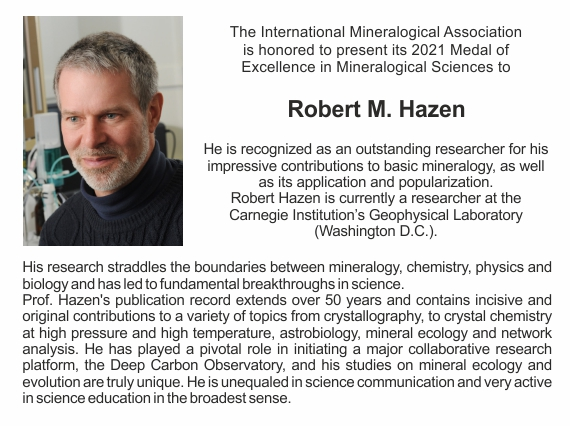
May 26, 2021
Ignacio Sanchez of the Universidad de Buenos Aires presented an ENIGMA Seminar remotely on “Are there Biophysical, Physiological, and Coding Constraints to Genome and Proteome Stoichiometries?”
May 26, 2021
Bob Hazen aired this spring on Mineral Talks LIVE, Episode 49. Enjoy this weekly LIVE webinar that brings in-depth and in-person interviews with mineral people from around the world!
May 19, 2021
Our Outreach team of Janice McDonnell and Alesha Vega developed and administered a Professional Development Workshop for K12 teachers on integrating Astrobiology in the Classroom. ENIGMA CoPI Vikas Nanda and post-doc Corday Selden were featured. Workshop was FREE and open to ALL K12 teachers nationwide. If you wish to learn more about possible future events contact STEM Community Engagement & Outreach Coordinator, Alesha Vega, at aleshav@marine.rutgers.edu.
May 14, 2021
Congratulations Juliana DiGiacomo – recipient of Henry Rutgers Scholar Award
Juliana’s thesis title: “The Environment as a Driving Force in the Coevolution of Ferredoxin Termini”
Juliana’s work has been part of the ENIGMA interdisciplinary program focused on the synthesis and function of nanomachines in the origin of life. Her mentor was ENIGMA team post-doctoral researcher Dr. Saroj Poudel.
The Henry Rutgers Scholar Award recognizes graduating seniors who have completed outstanding independent research projects leading to an interdepartmental thesis or a thesis in their major field of study. Every year, professors are invited to nominate students who have done exceptionally strong work in their discipline that highlights the originality of the research and conclusions along with exhibiting evidence of superior critical reasoning and scholarly achievement.
These awards are offered across all departments of the School of Arts and Sciences, and so represent only the very finest achievements of our students.

May 12, 2021
Post-doc Corday Selden presented an ENIGMA Seminar remotely on “N2 Fixation in the Modern Ocean: Recent Insights” and “Stable Isotope Metallomics: Developing Tools to Explore Biological Metal use Through Time”.
May 3, 2021

April 28, 2021
Akif Tezcan of UCSD presented an ENIGMA Seminar remotely on “On the Importance/Design of Metal Selectivity in Protein Scaffolds”
April 24, 2021
ENIGMA team member and NASA Postdoctoral Program Fellow Saroj Poudel presented virtually “Expansion of Positively Charged Cavities Enabled the Evolution of Substrate Specificity in Rubisco” at the 38th Eastern Regional Photosynthesis Conference.
April 22, 2021
On Earth Day 2021, ENIGMA research scientist Bob Hazen of the Carnegie Institute of Sciences‘ was cited as a Top Influential Earth Scientists Today in recognition for his many contributions to understanding of how Earth works. Read the complete article at Academic Influence.
April 14, 2021
Vikas Nanda presented an ENIGMA Seminar remotely on “A Gap between Catalysis and Autocatalysis”.
April 8, 2021
ENIGMA is thrilled that team member Akif Tezcan was awarded a 2021 Guggenheim Fellowship in the field of chemistry. The John Simon Guggenheim Memorial Foundation approved the awarding for Guggenheim Fellowships to a diverse group of 184 artists, writers, scholars, and scientists. (See the full list here.)
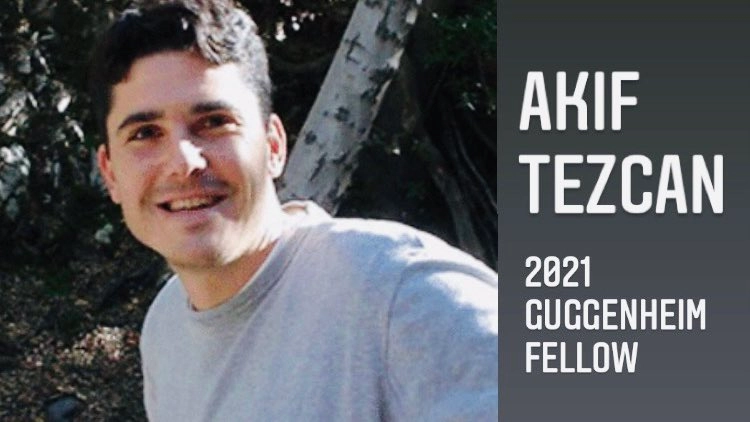
F. Akif Tezcan, Professor of Chemistry and Biochemistry, University of California, San Diego: Polymer-Integrated Protein Crystals: A New Class of Functional Materials. Field: Chemistry
April 4, 2021
Congratulations to Orion Farr for the excellent presentation of his Master’s thesis in Earth & Planetary Science on “UV-recycling of phosphorus in the Archean Eon”.
March 31, 2021
Yana Bromberg presented an ENIGMA Seminar remotely on “Quantifying Structural Relationships of Metal Binding Sites Suggests Origins of Biological Electron Transfer”.
March 4, 2021
ENIGMA program organized a “One Day Bioinformatics Boot Camp” – a four-hour course to expand understanding of bioinformatics, integrating current knowledge from leaders in computational biology and computer science fields. Find agenda here and recording of Bioinformatics Boot Camp here.

March 3, 2021
Nathan Yee presented an ENIGMA Seminar remotely on “A Sulfate Story: From Continental Weathering to Assimilation by Microbial Life”.
February 17, 2021
Lujendra Ojha, Rutgers Earth & Planetary Sciences, presented an ENIGMA Seminar remotely on “Can an Early Hot Mars Resolve the Faint Young Sun Paradox?”.
January 27, 2021
Post-doc Bhanu Jagilinki organized a virtual symposium on “Metalloproteins at the Crossroads of Design and Nature”. Keynote speaker was Hannah Shafaat, Dept. Chemistry and Biochemistry, Ohio State University. Ph.D. and Post-docs researchers from across the country also presented their work.

January 20, 2021
Post-doc Bhanu Jagilinki presented an ENIGMA Seminar remotely on ”Recent Advances in the Designing of Helical Bundles with Metal Binding Centers”.
January 20, 2021
Post-doc Jihua Hao will be starting a new adventure in science in 2021 with a position at the University of Science and Technology of China.
January 4, 2021
Corday Selden Ph.D. has joined the Falkowski and Yee labs and will be focusing on Precambrian biogeochemistry and the conditions that facilitated the emergence of primordial enzymes.
December 7, 2020
Ron Koder of City College of New York presented an ENIGMA Seminar remotely on “Utilizing Disorder in Natural and Designed Proteins and Enzymes”.
December 4, 2020
Donato Giovannelli appears in Episode #2 of the new Netflix series “Alien Worlds“. He’s discussing the unique properties of water while filming in Iceland.
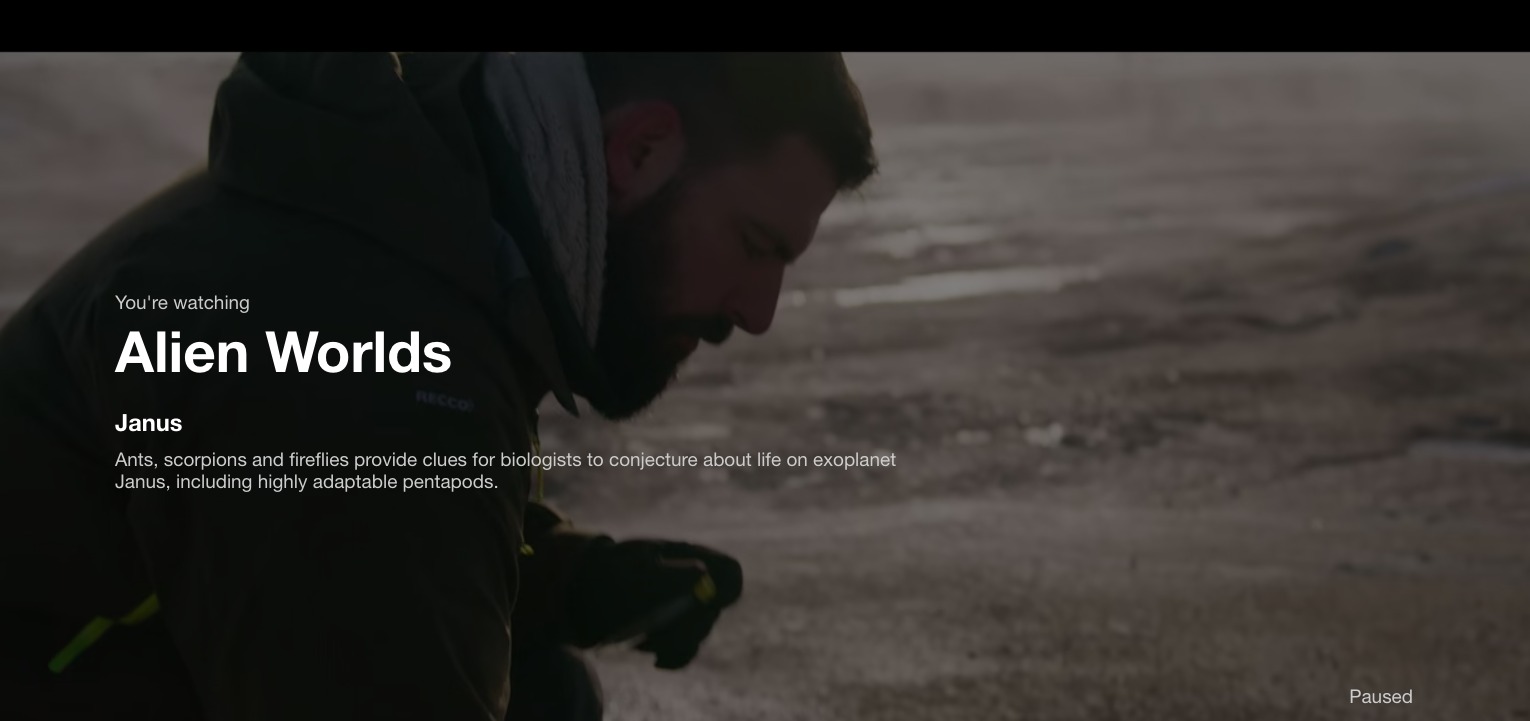
November 19, 2020
ENIGMA program organized a “One Day Geology Boot Camp” – a four-hour course to expand understanding of geological processes, integrating current knowledge from leaders across the astrobiology and geology fields. Find agenda here and recording of Geology Boot Camp here.

November 19, 2020
Rutgers 4-H STEM Ambassador Team was a recipient of a 27th Excellence Award for the School of Environmental and Biological Sciences (SEBS) and the New Jersey Agricultural Experiment Station (NJAES). Congratulations to Janice McDonnell, Alesha Vega, and Christine Bean who are also leaders of our ENIGMA Education and Outreach team!
Read the complete article here.
November 9, 2020
Post-doc Jennifer Timm presented an ENIGMA Seminar remotely on “Reconstructing a Primordial Hydrogenase”.
October 26, 2020
Diego Ferreiro of the Universidad de Buenos Aires presented an ENIGMA Seminar remotely on “Structural Analysis of Ancient Metalloproteins: Finding Recurrent Repetitive Elements”.
October 21, 2020
FANFARE of Excitement for our NEW ENIGMA TOOLS of SCIENCE VIDEO! Travel with us through Earth’s evolutionary timeline, on a mission to learn about the origin of life. Team up with @RutgersDMCS to figure out how proteins became the catalyst behind the evolution of life on Earth, and how that might set the table for discovering life on other planets. See new video HERE. Many thanks to all involved for the fabulous work!
October 20, 2020
Juliane Gross is featured in the 4-H STEM Career Series video. Juliane is currently the Deputy Curator of Apollo Moon Rocks at NASA Johnson Space Center in Houston Texas.
October 19, 2020
Post-doc Jennifer Timm presented a Rutgers Dept. of Marine and Coastal Sciences Seminar remotely on “Towards Reconstruction of a Primordial Hydrogenase”.
October 14, 2020
Paul Falkowski presented “The Origin and Emergence of Global Coupled Biogeochemical Cycles” as part of The International Forum on Advanced Environmental Sciences and Technology.
Video here.
October 13, 2020
Shaunna Morrison is featured in the 4-H STEM Career Series video. Shaunna is team member on the NASA Mars Curiosity Rover mission! Watch the video to learn more about her career in STEM.
October 12, 2020
Post-doc Jihua Hao presented a Rutgers Dept. of Marine and Coastal Sciences Seminar remotely on “Cycling Phosphorus in Planetary Ocean Waters: Early Earth and Enceladus”.
October 12, 2020
Post-doc Aaron Martinez presented an ENIGMA Seminar remotely on “Multiproxy Records of the End-Devonian Hangenberg Crisis in the Appalachian Basin, USA”.
October 3, 2020
Shaunna Morrison was part of the development team and participated in the 2020 4-H STEM Challenge.
This year’s challenge — Mars Base Camp — marks the 13th annual event to date and explored human space exploration and humanity’s efforts to reach the Red Planet. Test your knowledge of the Red Planet with this Mars Base Camp Trivia Challenge featuring celebrity guest host Bill Nye!
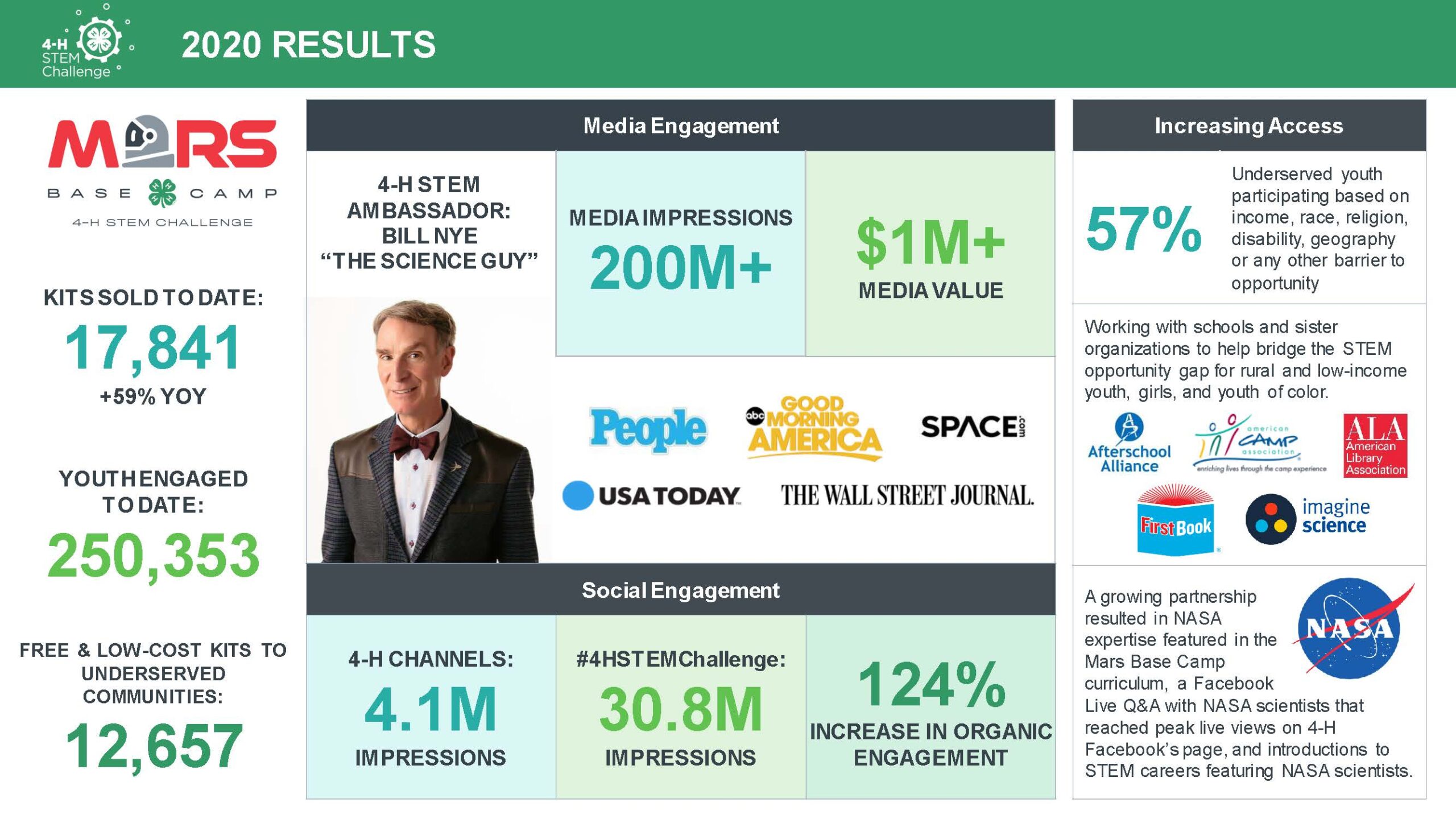
Watch WFXR News story here.
Space.com article here.
October 1, 2020
As part of the National 4-H STEM Challenge, youth and families from across the country participated in an online Mars Base Camp Scientist Panel on October 1, 2020. They met three world-renowned space scientists from Rutgers and the ENIGMA team, learned about their innovative research in astrobiology and had a chance to ask their questions. Watch recording of Dr. Juliane Gross, Dr. Shaunna Morrison, and Dr. Lujendra Ojha.
September 28, 2020
Post-doc Kenneth McGuinness presented an ENIGMA Seminar remotely on “Toward Completing the Earth’s Electron Transport System”.
September 17, 2020
ENIGMA collaborator Kevin Peter Hand of the NASA Jet Propulsion Laboratory presented an ENIGMA Seminar remotely “On the Nature of Europa’s Surface Chemistry and the Possibility of a Radiolytic Redox Cycling”.
September 17, 2020
The 2020 4‑H STEM Challenge is a Race to Land Humans on Mars this year!
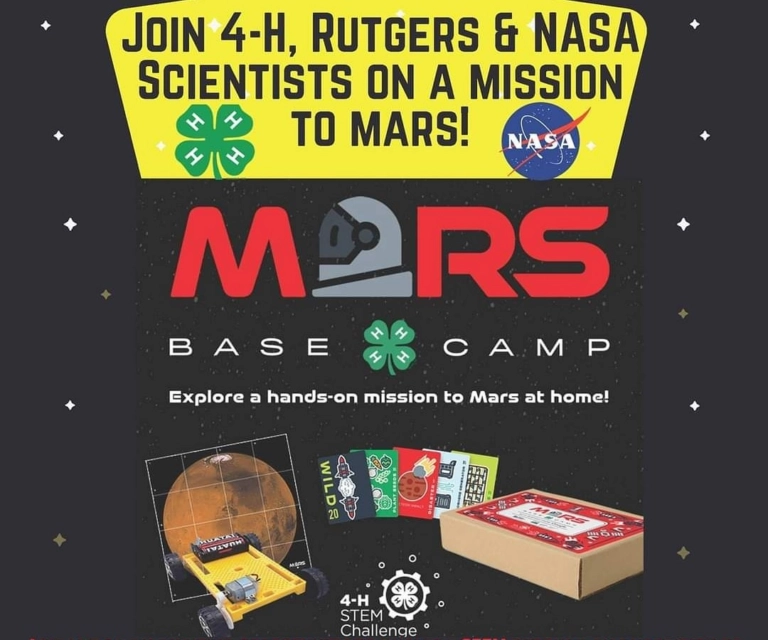
The race to land humans on Mars is on! The annual 4-H STEM Challenge in connection with Rutgers looks a little different this year but the enthusiasm remains. The 2020 challenge will explore sending a mission to Mars with the activity, Mars Base Camp.
Rutgers University 4-H is hosting two online components to the STEM challenge this year. The Scientists Panel on Thursday, October 1st is where the public will have a chance to meet with world renowned Space Scientists behind innovative Mars research, NASA collaborators and the scientists who created the Mars Base Camp Challenge. Saturday, October 3rd is when youth, ages 8-14 years, will join an exciting opportunity to explore STEM through an expedition to Mars with the Mars Base Camp Challenge!
Several ENIGMA team members have worked tirelessly to support the program and will be participating in this multi-institution collaboration. Great work!
Read the complete article at SEBS & NJAES Newsroom.
September 1, 2020
NEW! Minor in Astrobiology

Rutgers is pleased to announce a Minor in Astrobiology for undergraduates.
Description: Astrobiology is an interdisciplinary scientific field of study that examines the origins and distribution of life in the universe. The Astrobiology minor is designed to educate students to cover the range of scientific disciplines that contribute to our general understanding of life, the origin of life, the past history of life on Earth, and the possible existence of life on other planets and moons. The principal goal of the minor is to develop student literacy in astrobiology so that they can critically evaluate claims related to this field reported in the news media and popular culture.
Learn more here about the Minor in Astrobiology.
For information about the minor, students should contact Dr. Nathan Yee, the Astrobiology faculty advisor, at nyee@envsci.rutgers.edu or Dr. Roy Schlische, the EPS undergraduate program director, at schlisch@eps.rutgers.edu.
August 27, 2020
Post-doc Laura Haynes will be starting a new position as an Assistant Professor at Vassar College.
August 24, 2020
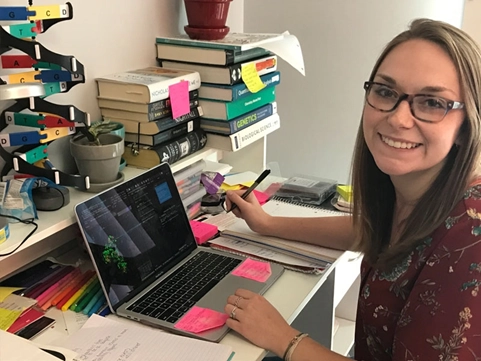
Kelsey Wolfe, a junior Biochemistry major, gained valuable research experience in the Center for Advanced Biotechnology Medicine (CABM) Summer Undergraduate Research Experience (SURE) program hosted by Rutgers University.
Wolfe spent nine weeks working on a NASA Astrobiology Institute project, Evolution of Nanomachines in the Geosphere and Microbial Ancestors (ENIGMA). Its goal was to understand the structure and function of the first proteins that started life on Earth some 3.8 billion years ago.
Read the complete article at Fredonia State University website.
August 14, 2020
Post-doc Adrienne Hoarfrost, participated as a member of Frontier Development Lab Astronaut Health team, presenting at the Frontier Development Lab 2020 Space Science & Al Showcase on “Can Casual Inference ML solve the chicken or the egg problems of cancer research?”
Find recording here with talk by Astronaut Health team starting at 47:11.
July 29, 2020
Paul Falkowski presented “Enigma Breakthroughs: Results from the Field” as part of the Rutgers EPS Summer Science Series.
July 7, 2020
Post-doc Josh Mancini is departing the ENIGMA team for new adventures as a biochemist to help engineer plant proteins at Beyond Meat.
July 3, 2020
Post-doc Joy Buongiorno will be starting a new position as Assistant Professor of Environmental Biology in the Fall at Maryville College, nestled against the majestic Smoky Mountains in East Tennessee. Joy will be developing the Division of Natural Sciences’ new environmental science major.
June 30, 2020
Welcome to Renna Yi, a graduate student in Physics & Astronomy, who will be working with the Falkowski and Nanda Labs. She is interested in mathematical modeling of catalysis and autocatalysis, to better understand how such systems could have emerged from prebiotic chemistry.
June 24, 2020
Lujendra Ojha presented an ENIGMA Seminar remotely on “Recent Missions to Mars”.
June 16-17, 2020
Rutgers 3rd Annual ENIGMA Astrobiology Symposium took place virtually on June 16th and 17th with international participation amongst our team of scientists and invited external speakers. Thank you to our ENIGMA team of co-investigators, collaborators, post-docs, graduate students, staff, undergraduates, and distinguished speakers for a great two-day event.
Our multi-themed integrated science presentations and discussions were recorded and can be found on the ENIGMA YouTube Channel here.
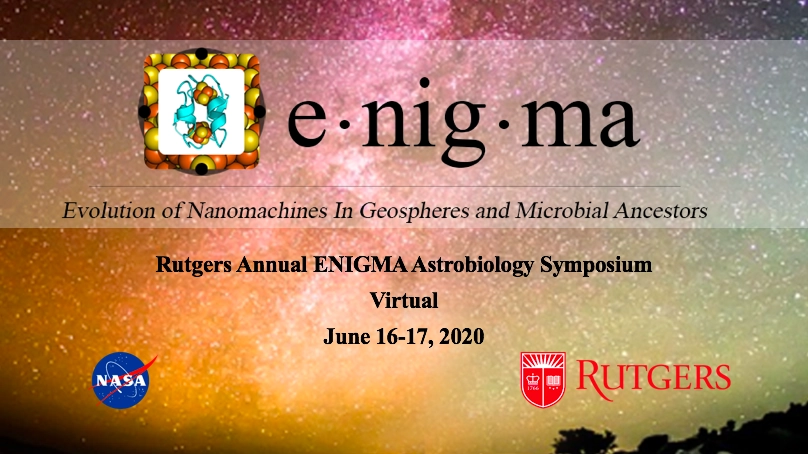
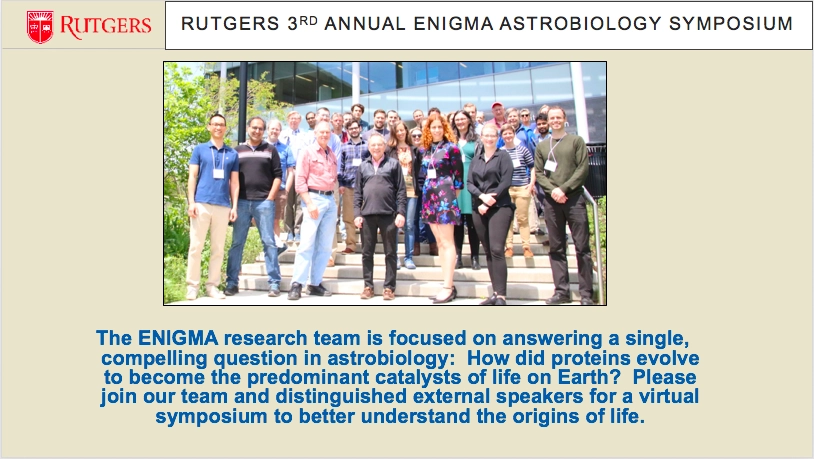

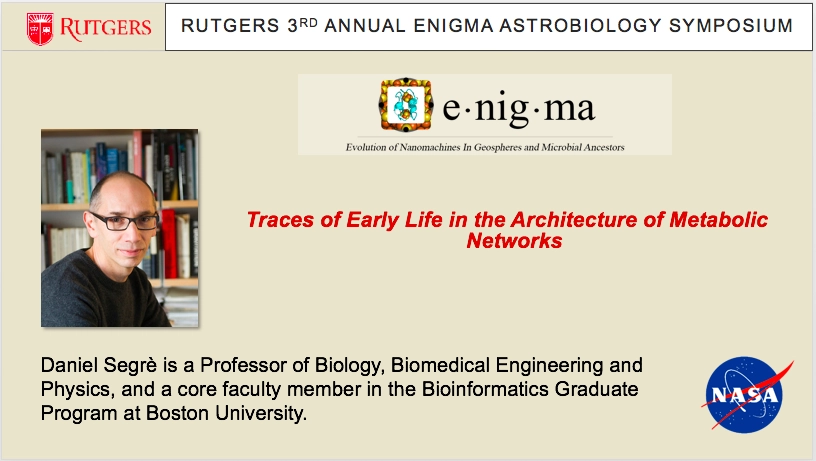

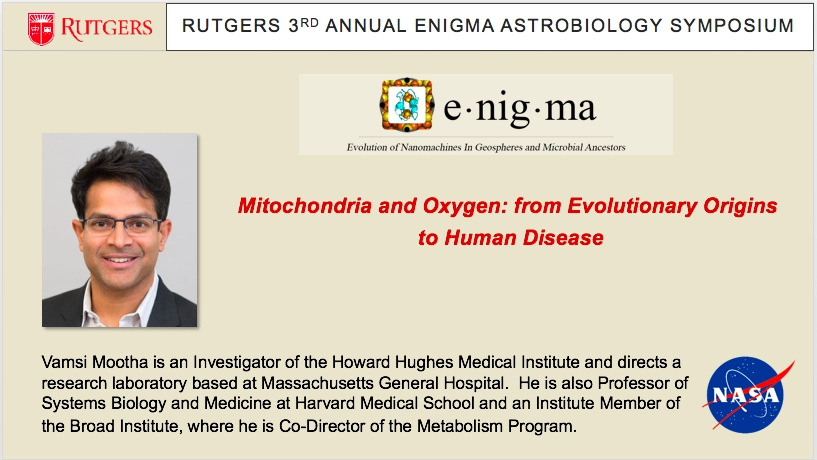
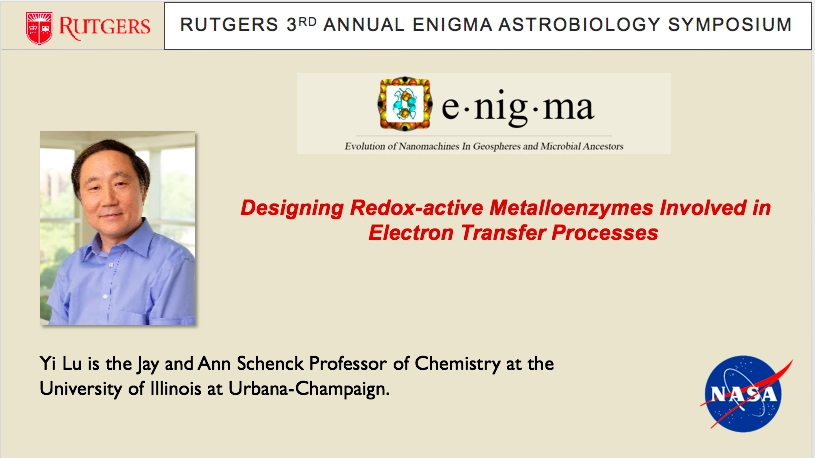
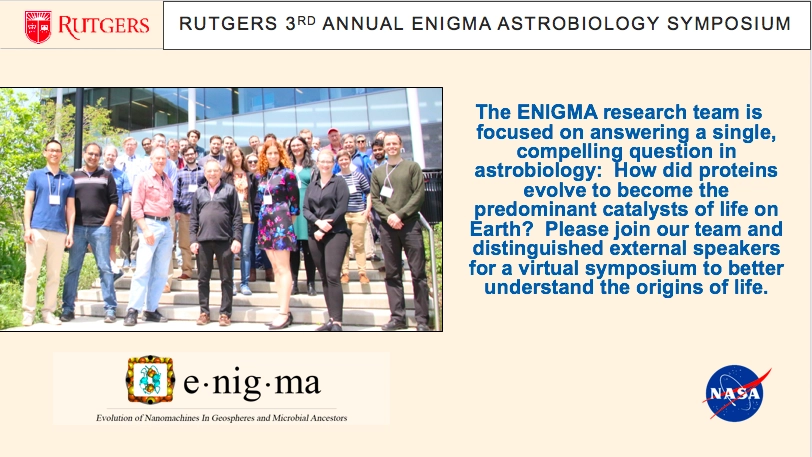
May 20, 2020
Liz Windham is joining ENIGMA as a graduate student in the lab of Joff Silberg, Rice University, in their Biochemistry and Cell Biology Ph.D. program. She will focus on synthetic biology – protein engineering as well as redox biology.
May 20, 2020
“Reaching Out to the Next Generation of Astrobiologists”
Astrobiologists at Rutgers University share discoveries with local school children.

Read complete article at Astrobiology at NASA News.
May 18, 2020
Yossi Paltiel of the Hebrew University of Jerusalem presented an ENIGMA Seminar remotely on “Why Should Life Maintain Chirality”.
May 14, 2020
Juliane Gross presented “The Moon Rocks” as part of Rutgers Geology Museum “Ask a Geologist” Series. Find recording here.
May 11, 2020
Our ENIGMA Education and Outreach team generated informal STEM learning activities for families while at home during COVID and beyond. The work features ENIGMA, and correlated the high-level Astrobiology research with activities students and families can easily execute at home.
Check out – Exploring Life on Other Planets! Part 1: What does it mean to be alive?
May 4, 2020
Post-doc Jihua Hao presented an ENIGMA Seminar remotely on “Chemical Composition of Enceladus Seawater and its Implications to Habitability”.
April 29, 2020
Nir Keren of the Hebrew University of Jerusalem presented a Rutgers Biochemistry and Microbiology Fermentation Webinar Seminar remotely on “Photosynthetic Life in Extreme Environments: How Desert Sand Crust Cyanobacteria Survive Hydration/Desiccation Cycles”.
April 27, 2020
April 22, 2020
Douglas Pike presented “From Structure to Function of Primordial Events” as part of the Building Worlds Seminar Series.
April 22, 2020
Donato Giovannelli presented a Rutgers Biochemistry & Microbiology Seminar remotely on “Subsurface Biosphere Diversity Tracks Deep Plate Processes in a Subduction Zone”.
April 20, 2020
Post-doc Ariel Aptekmann of Rutgers and Joy Buongiorno of Carnegie Institute, ENIGMA team collaborators, presented an ENIGMA Seminar. Ariel spoke remotely on “Prediction of Metal-binding Proteins from Protein Sequences “and Joy spoke on “Data Science Approaches Reveal Environmental Drivers Behind Microbial Oxidoreductase Abundance in Volcanic Ecosystems”.
April 6, 2020
Post-doc Julian Esselborn of UCSD, ENIGMA collaborators, presented an ENIGMA Seminar remotely on “Mimicking Metalloprotein Evolution by Combination Metal Binding Motifs and Continuous Evolution”.
March 28, 2020

Doug Pike is an ENIGMA team researcher at Rutgers who is now working on the antiviral for COVID-19. He tells us about the development and what it means to winning the fight with the coronavirus.
Listen to the podcast at Sound Cloud.
March 24, 2020

“We think we have found the building blocks of life – the Lego set that led, ultimately, to the evolution of cells, animals and plants,” says senior author Paul Falkowski from Rutgers University, US.
Read the complete article on Cosmos.
March 23, 2020
Graduate student Ian Campbell of Rice University, ENIGMA collaborators, presented an ENIGMA Seminar remotely on “Cellular Assay of Half-Fds”.
March 23, 2020
Post-doc Bhanu Jagilinki presented an ENIGMA Seminar remotely on “Understanding the Origins of Bacterial Ferredoxins.”
March 20, 2020
New ONLINE Program Series: Ask A Geologist!
A new virtual series is being launched by the Rutgers Geology Museum to help in the homeschooling efforts of countless parents.
Join bi-weekly (Tuesday/Thursday) for these online sessions, where we hope to engage children and answer their questions! Like all of the RU Geology Museum events, this virtual event is completely FREE!
During each event, our geologist will first introduce the day’s geologic topic and then answer your questions about it! Events are primarily aimed at elementary and middle school aged children, but all ages are welcome to join and learn something new!
Click on this for Event Schedule and more information.
March 18, 2020
The paper all the recent press is about by Hagai Raanan, Saroj Poudel, Douglas H. Pike, Vikas Nanda, and Paul G. Falkowski released in PNAS:
Raanan, H., Poudel, S., Pike, D. H., Nanda, V., & Falkowski, P. G. (2020). Small protein folds at the root of an ancient metabolic network. Proceedings of the National Academy of Sciences. DOI: 10.1073/pnas.1914982117
March 17, 2020
“Scientists Pin Down Protein Building Blocks that Powered Earth’s Earliest Life”
Turning food into energy is essential for life to thrive, so researchers zoomed in on the tiny fragments of proteins that might have done the job billions of years ago.
Read the complete article at Discover Magazine.
March 16, 2020
International press coverage of the Raanan et al article in PNAS
“Descubren las proteínas que hicieron posible la vida en la Tierra”
Read the complete article in Spanish at El Mundo.
March 16, 2020
“Study: Structure of 3.5 Billion-Year-Old Molecules Could Help Us Find Aliens”
This may be the biological signature we need to find life on other planets
Read the complete article at Inverse.
March 9, 2020
Graduate student Ashley Murphy presented an ENIGMA Seminar here at Rutgers on “Preservation of Organic Carbon in Dolomitized Cambrian Stromatolites”.
March 4, 2020
A collaborator Loren Williams, from Georgia Institute of Technology’s Institute for Bioengineering & Biological Sciences , visited with the ENIGMA team for a couple of days. Williams’ talk was given on “Voyage from the Gates of the Hadean” and hosted by Vikas Nanda and CABM.
February 28-29, 2020
Bob Hazen presented the 40th Woodward-Eckis Leadership Lectures on “Chance, Necessity and the Origins of Life “and “The Story of Earth: How Life and Rocks Have Co-Evolved” at Pomona College, Claremont, CA..
February 28, 2020
A collaborator Valentina Erastova, from the University of Edinburgh, visited Rutgers for a couple of weeks. She is an expert in molecular simulations of solids, in particular mineral interactions with amino acids. Erastova’s talk was given on “Modelling Dynamics in Solids: From Origin of Life to Modern Challenges” and hosted by Nathan Yee and Department of Environmental Sciences.
February 24, 2020
Post-doc Joshua Mancini presented an ENIGMA Seminar here at Rutgers on “Reinventing the First Hydrogenases.”
February 19-20, 2020
Bob Hazen participated in NSF Workshop on low-T Geochemical Data in Atlanta, Georgia.
February 10, 2020
Post-doc Jennifer Timm presented an ENIGMA Seminar here at Rutgers on “Investigating the Proteins Involved in CODH Maturation.”
January 27, 2020
January 20, 2020
Field trip to the American Museum of Natural History (AMNH) in New York City.
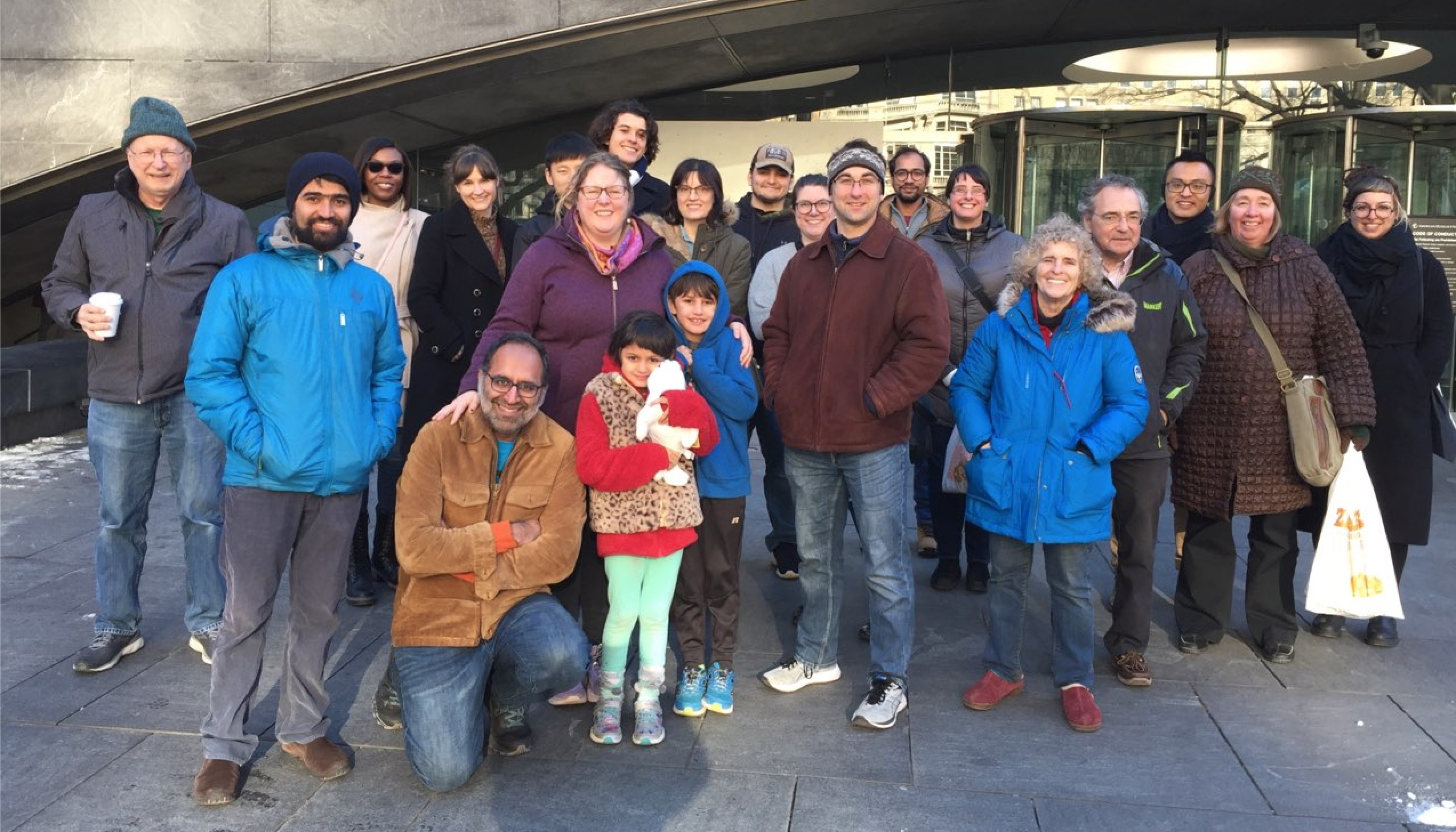
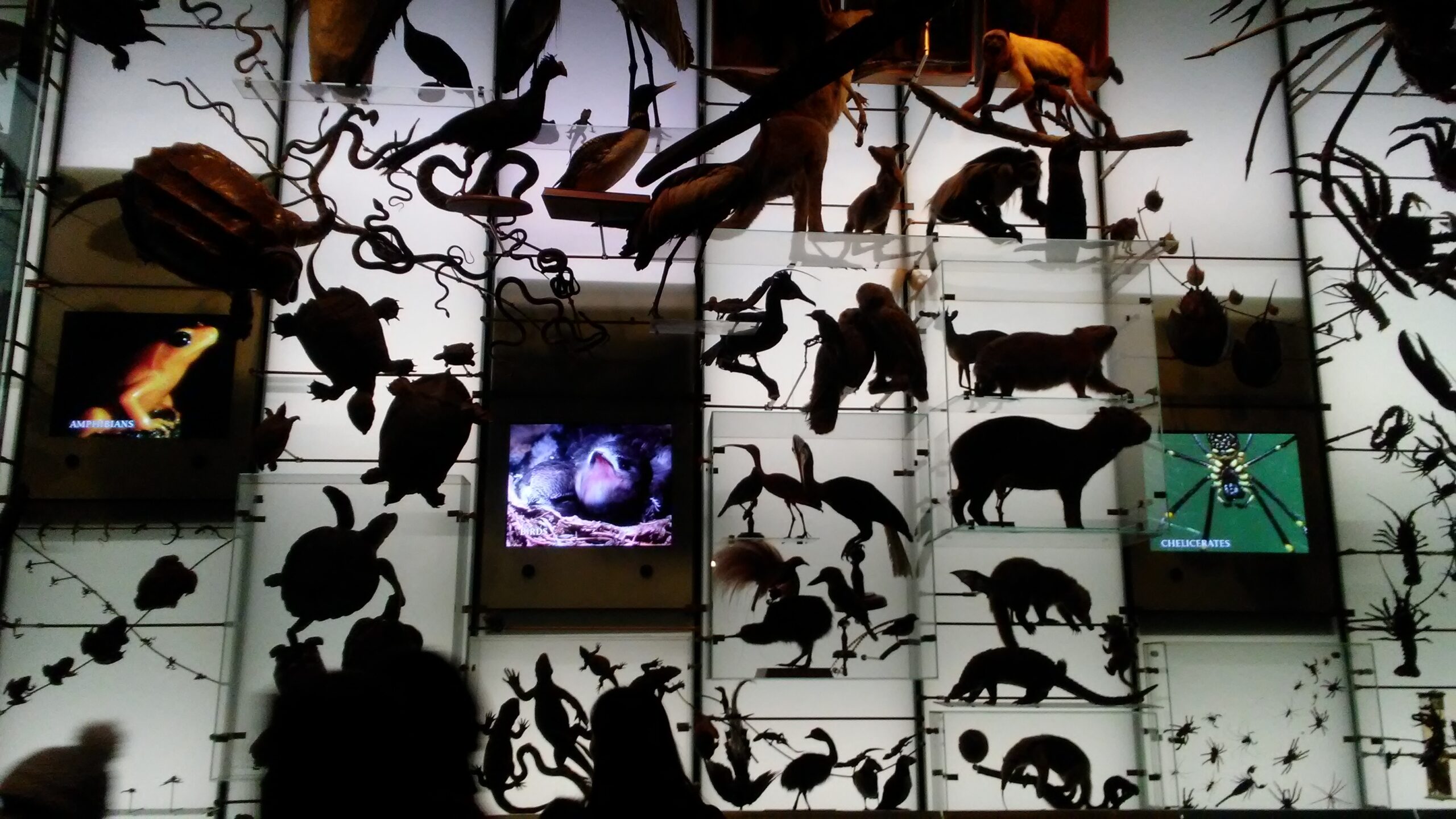
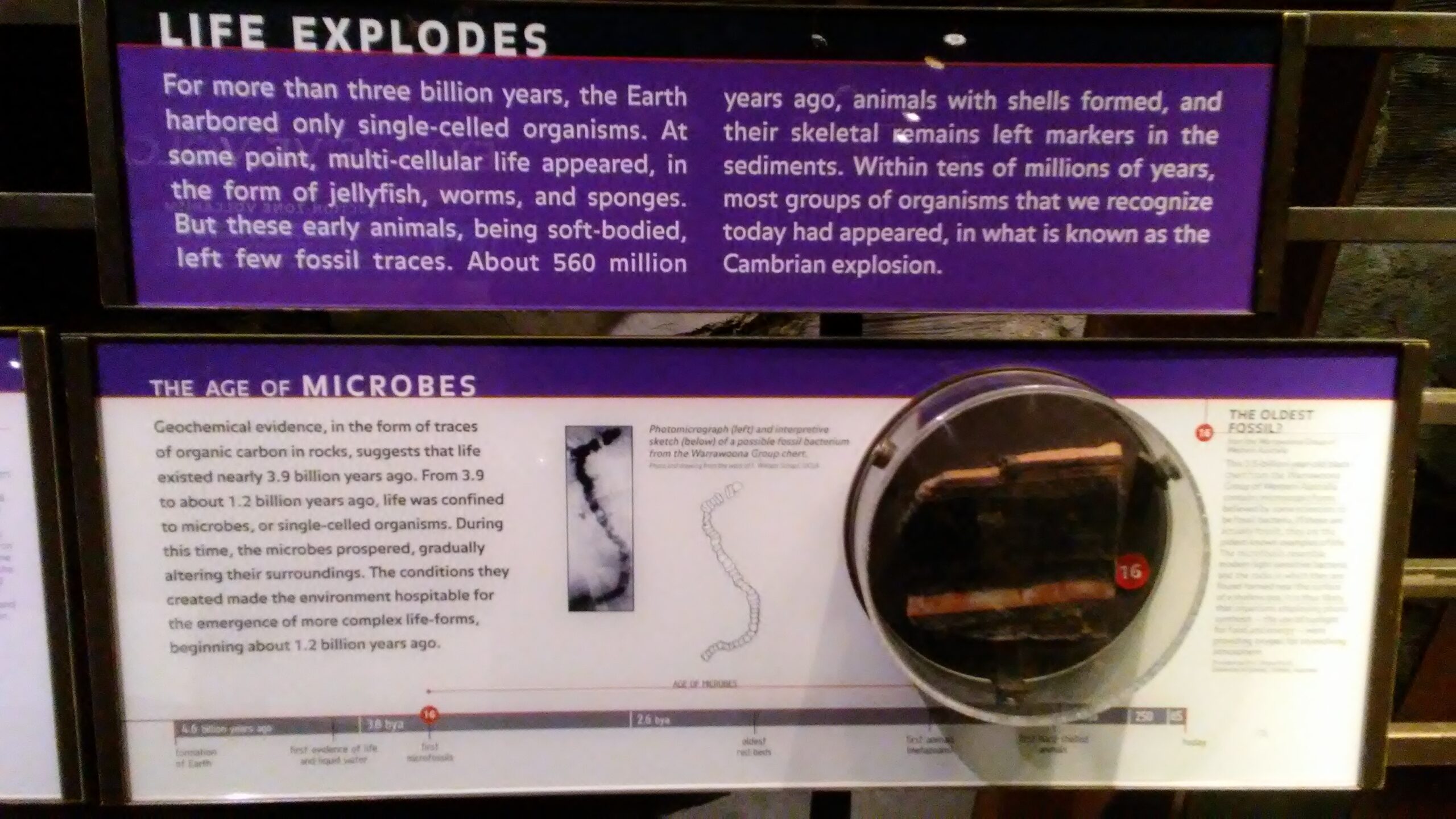
January 17-19
Bob Hazen participated in Deep-time Digital Earth (DDE) program meetings in Busan, South Korea.
January 13, 2020
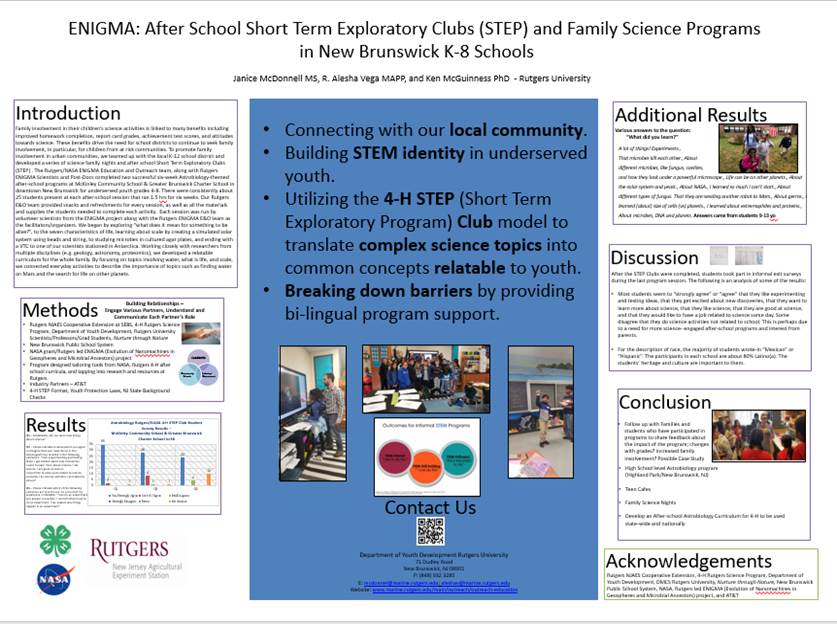
Alesha Vega, ENIGMA Outreach and Community Engagement Coordinator, presented a poster on ENIGMA: After School Short Term Exploratory Clubs (STEP) and Family Science Programs in New Brunswick K-8 Schools, to 200 people at the annual Rutgers Cooperative Extension Conference.
January 9-10, 2020
Bob Hazen participated in meetings and workshops on building comprehensive, reliable, open-access deep-time data resources and resources in Tucson, Arizona as part of Carnegie Institute of Science’s Deep-Time Data Infrastructure (DTDI) program.
January 6, 2020
Jennifer Timm Ph.D. has joined the Falkowski and Nanda labs and will be focusing on metalloproteins, shedding light on how at the very origin of life peptides might have started to hold metal clusters and do complex chemical reactions.
January 6, 2020
Juliane Gross is to be the NASA Deputy Curator of Apollo Moon samples and is on leave (18 month IPA) at NASA Johnson Space Center in Houston, TX until summer 2021.
December 9, 2019
Post-doc Saroj Poudel presented an ENIGMA Seminar here at Rutgers on “Design to Distribution: The History of Nitrogenase.”
December 5, 2019
“Rutgers researchers teach science to local students“
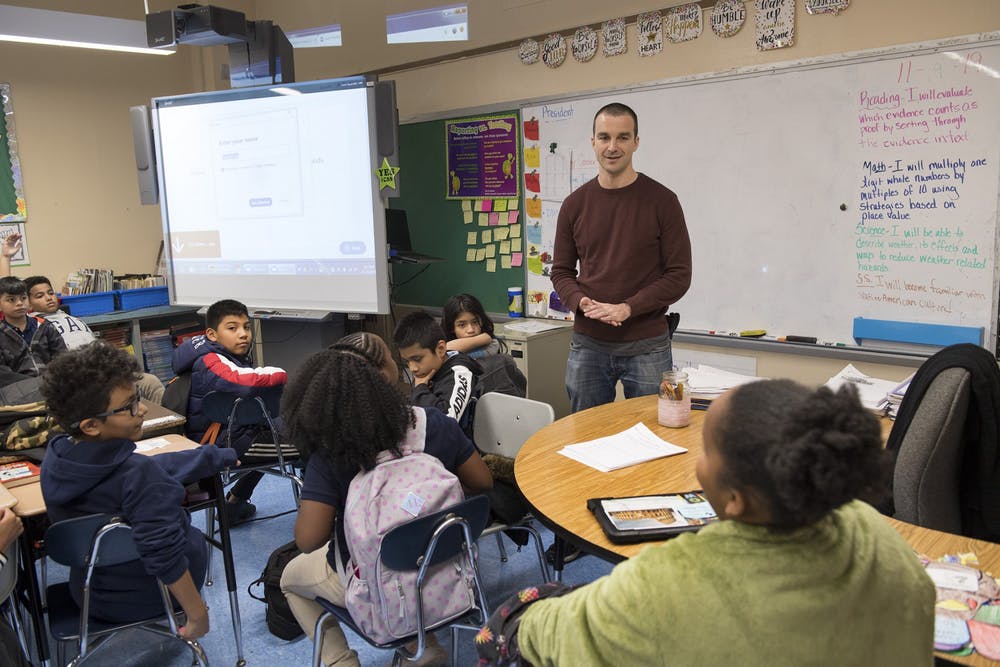
Rutgers University postdoctoral associate researcher Kenneth McGuinness said he helps students to think about the diversity of life by taking them outside for lessons.
Read the complete article at the Daily Targum and My Central Jersey.
December 4, 2019

November 25, 2019
November 24, 2019
“Rutgers researchers study origins of early life“

Postdoctoral researcher Joshua Mancini said his group worked at the Busch and Cook campuses.
Read the complete article at the Daily Targum.
November 22, 2019
November 21, 2019
Bob Hazen presented on the “Co-evolution of the geosphere and biosphere “ at the University of Pittsburgh.
November 18, 2019
Post-doc Jihua Hao presented an ENIGMA Seminar here at Rutgers on “Cycling Phosphorus on the Early Earth and Enceladus.”
November 15th, 2019
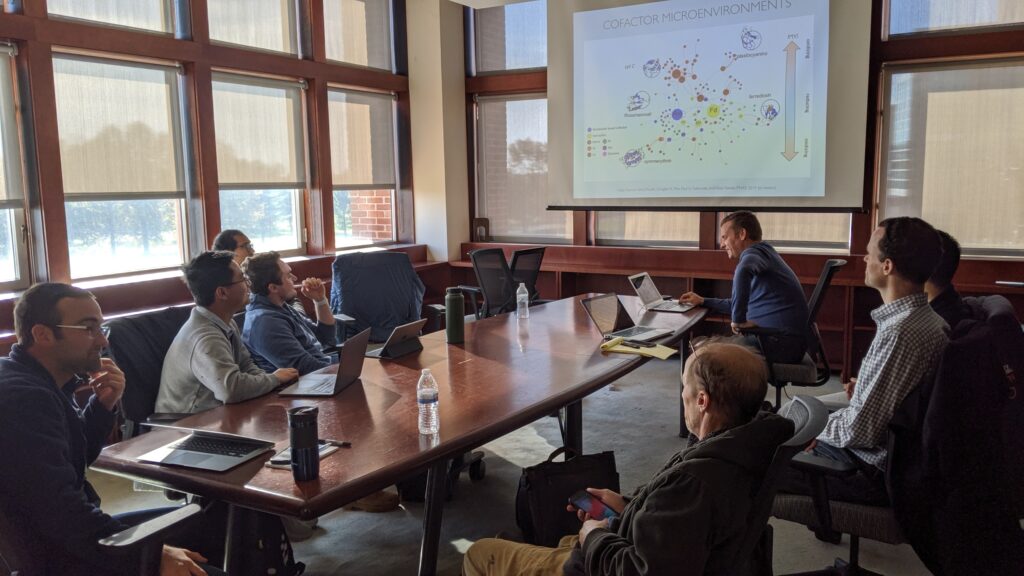
Post-doc’s Jihua Hao, Saroj Poudel and graduate student Douglas Pike presented papers for discussion at Rutgers newly formed Astrobiology Journal Club (multidisciplinary discussions of papers pertinent to astrobiology).
November 13-14, 2019
Vik Nanda of Rutgers attended the NAI in-person EC meeting and the NASA Astrobiology Science Forum hosted by the NASA Ames Research Center in Moffett Field, CA.
November 13, 2019
Enigma team post-doc’s and researchers Joshua Mancini, Saroj Poudel, and Douglas Pike were interviewed for the New Jersey News12 story “Rutgers researchers to investigate for NASA how life began”. They discussed their work on the Enigma NASA project – the study of protein or peptides, which are the basic building blocks of life, and how life began on Earth.
Read the article on New Jersey News 12.
Biophysics doctoral candidate Douglas Pike, along with postdocs Josh Mancini and Saroj Poudel.
November 13, 2019
The Rutgers science and education team continued their school 4-H STEP club (Short Term Exploratory Program) focused on ENIGMA. 29 students (4-8th grade) from McKinley Ave Community School in New Brunswick, NJ participated – Every Tuesday and Wednesday from Oct. 15 to Nov. 13th (excluding Nov. 5th).

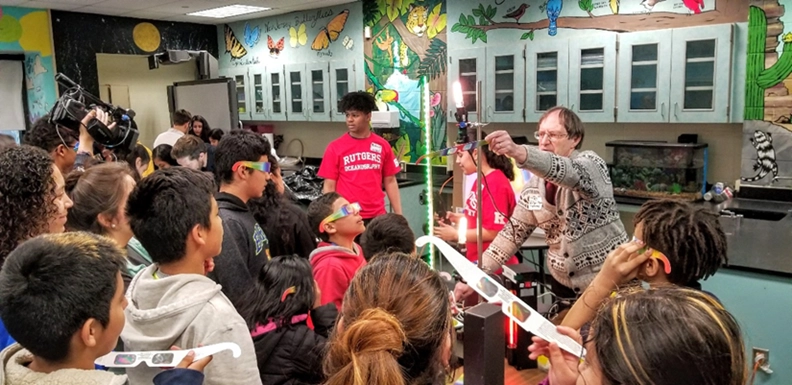

November 11, 2019
Post-doc Saroj Poudel presented “Nanomachines that powered ancient life “ at Rutgers Theobald Smith Society Fall Meeting of the American Society of Microbiology.
November 7, 2019
“Rutgers Researchers Set Out to Prove Evolution of All Life, Possibility of Extraterrestrial Life”
From simple proteins to living cells, NASA-funded research at Rutgers tests theories on the origins of life.

Read the complete article at Rutgers Today.
November 6, 2019
Professor Juliane Gross helps NASA open Apollo samples ahead of Artemis missions
NASA scientists opened an untouched rock and soil sample from the Moon returned to Earth on Apollo 17, marking the first time in more than 40 years a pristine sample of rock and regolith from the Apollo era has been opened. It sets the stage for scientists to practice techniques to study future samples collected on Artemis missions.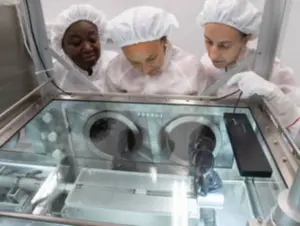
Read the complete article at NASA.
November 4, 2019
Graduate student Ian Campbell of Rice University presented an ENIGMA Seminar on “Evolutionary Relationships Between Low Potential Ferredoxin and Flavodoxin Electron Carriers.”
October 30-31, 2019
Our Carnegie Institute collaborators held a datathon with Sara Walker of Arizona State University, with the objective of advancing NAI themes related to the expression of oxidoreductase enzymes in differing geological/geochemical environments.
October 28, 2019
“Rock-breathing aliens? NASA researcher says we must think beyond anything we know”
Any place where there is water on Earth, scientists say they have found life. A Rutgers University professor says in the search to find extraterrestrial life, the focus should be not on planets but rather on moons in our galaxy where there’s evidence of water… Nathan Yee is a NASA-funded researcher at Rutgers and is teaching a new class on astrobiology, the study of alien life, the university said. “In science fiction, there is a lot of effort put into searching for signs of life like plants, animals and organisms that look like us. But there is a higher probability that alien life will be at the microscopic level. That fact is so much more interesting when you consider what the earliest lifeforms on Earth were capable of doing.”
Read the complete article in the Kansas City Star.
October 26, 2019
Shaunna Morrison of Carnegie Institute for Science won the DCO Emerging Leader award at the Deep Carbon 2019 meeting.
October 23-26, 2019
Bob Hazen, Shaunna Morrison, Adrienne Hoarfrost, Joy Buongiorno, Donato Giovannelli, and Jihua Hao of the Enigma team attended and presented on NAI themes at the Deep Carbon 2019 meeting in Washington DC.
October 21, 2019
Graduate student Douglas Pike presented an ENIGMA Seminar here at Rutgers on “Dimensionality Reduction of Protein Structure for Phylogenetic Analysis and Design of Putative Ancestral Proteins.”
October 19, 2019
Warm Congratulations to Bob Hazen who was elected as a Foreign Member of the Russian Academy of Sciences!
October 15, 2019
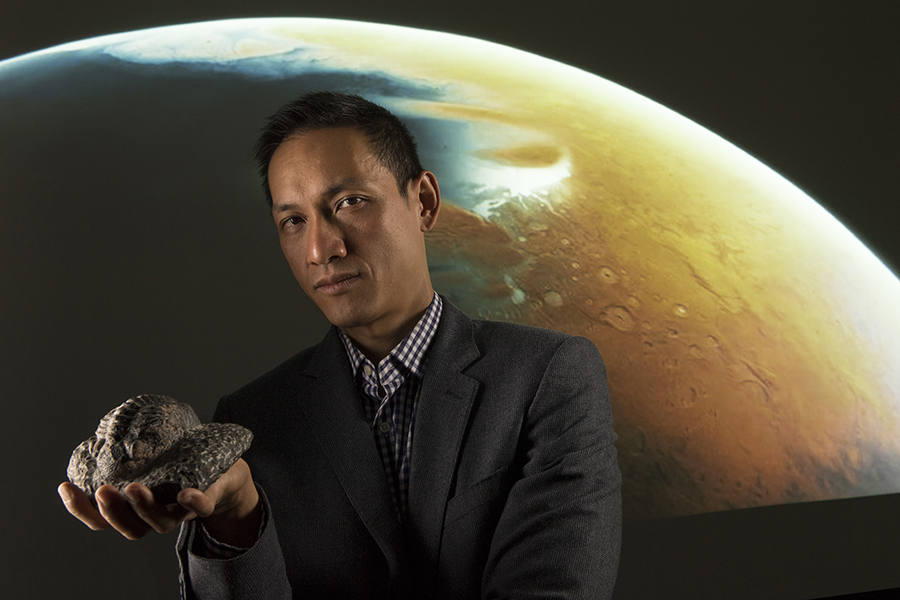
October 8-9, 2019
Alesha Vega, ENIGMA education and outreach team specialist, attended and presented at the 20th annual Conference of the Engagement Scholarship Consortium in Denver, Colorado. Alesha presented “Engaging Urban K-12 Children in Complex Science Topics” using the Enigma after-school and family science night programs as a paradigm.
October 7, 2019
Check out another new publication:
Miller, M., Vitale, D., Kahn, P.C., Rost, B., & Bromberg, Y. (2019). fuNTRp: Identifying protein positions for variation driven functional tuning. Nucleic Acids Research, , gkz818, DOI/10.1093/nar/gkz818/5580908
Hazen, R. M., Bromberg, Y., Downs, R. T., Eleish, A., Falkowski, P. G., Fox, P., … & Knoll, A. H. (2019). Deep Carbon through Deep Time: Data-Driven Insights in Whole Earth Carbon. Online Publication.
September 16, 2019
Post-doc Ariel Aptekmann presented the first Enigma Seminar of the term here at Rutgers on “Prediction of metal-binding proteins from sequence.”
September 6, 2019
Bob Hazen presented a seminar on “Co-evolution of the geosphere and biosphere” at the University of Kansas, Lawrence.
September 4, 2019
Shaunna Morrison gave a talk on mineral network analysis with middle school student collaborator, Cadence Boucher, at the Mineralogical Society of DC.
August 19-23, 2019
Bob Hazen presented a paper on “An evolutionary system of mineralogy” at the Goldschmidt. Additionally, our Carnegie team post-docs of Joy Buongiorno and Shaunna Morrison had talks/abstracts on the Enigma project at the Goldschmidt Conference in Barcelona, Spain.
August 19, 2019
Rutgers is offering its first Astrobiology course for undergraduates this coming Fall 2019. It is being taught by Prof. Nathan Yee, ENIGMA team member and Professor of Earth and Planetary Sciences. Course description is so interesting: Investigation of the origin, evolution, and distribution of life in our solar system and beyond. Addresses some of the biggest questions in science today such as where life began, whether there is life on other planets, and how scientists search for extra-terrestrial life. Course code is 01:460:225–Astrobiology (3 cr) and there are no prerequisites.
August 15, 2019
Warm Congratulations to Bob Hazen who was elected as a Fellow of the American Geophysical Union!
August 13, 2019
Some more new publications from Bob Hazen to check out:
Hazen, R.M. (2019) An evolutionary system of mineralogy: Proposal for a classification based on natural kind clustering. American Mineralogist, 104, 810-816. https://doi.org/10.2138/am-2019-6709CCBYNCND
Chan, M.A., Hinman, N.W., Potter-McIntyre, S.L., Schubert, K.E., Gillams, R.J., Awramik, S.M., Boston, P.J., Bower, D.M., Des Marais, D.J., Farmer, J.D., Jia, T.Z., King, P.L., Hazen, R.M., Leveille, R.J., Papineau, D., Rempfert, K.R., Sanchez-Roman, M., Spear, J.R., Southam, G., Stern, J.C., and Cleaves, H.J. II (2019) Deciphering biosignatures in planetary contexts. Astrobiology, 19, 28 p. https://www.liebertpub.com/doi/pdf/10.1089/ast.2018.1903
August 1-2, 2019
Post-doc’s Kenneth McGuinness, Saroj Poudel, and Ariel Aptekmann attended the MIT Dating in Deep Time II Workshop, in Cambridge MA. Kenneth presented a talk on “Can we date the emergence of metal-binding proteins in deep time?” and Ariel presented his poster on “Archaea genomic adaptations and their effect on phylogeny reconstruction“.
July 23, 2019
“Rutgers Researchers Identify the Origins of Metabolism” – Scientists insert synthesized, primordial protein into living cells.
A Rutgers-led study sheds light on one of the most enduring mysteries of science: How did metabolism – the process by which life powers itself by converting energy from food into movement and growth – begin?
To answer that question, the researchers reverse-engineered a primordial protein and inserted it into a living bacterium, where it successfully powered the cell’s metabolism, growth and reproduction, according to the study in Proceedings of the National Academy of Sciences.
Read the complete article on SEBS/NJAES Newsroom.
July 21, 2019
Shaunna Morrison gave an invited talk on “Predicting Martian Mineral Compositions In-situ: Crystal Chemical Techniques” at the American Crystallographic Association Annual meeting in Cincinnati, OH/Northern KY.
July 20, 2019

July 15-19, 2019
Paul Falkowski and post-doc Joshua Mancini participated in the 2019 Sagan Exoplanet Summer Workshop: Astrobiology for Astronomers, at Caltech. Paul presented on “Life as a Major Driver of Biogeochemical Cycles”.
Additional presentations from the Sagan Exoplanet Summer Workshop can be viewed here.
July 15-17, 2019
Bob Hazen participated in a datathon at Rensselaer Polytechnic Institute (RPI) to create a new, interactive visualization tool for the Dana mineral classification system.
July 15, 2019
Congratulations to Rutgers undergraduate Havishk Tripathi on the recent article “Havishk Tripathi Wins NASA Astrobiology Early Career Collaboration Award” which highlights his many paths, interests, and experiences in science. The Falkowski lab team is especially proud to have supported his passions and of his NAI Early Career Award for travel to the Earth-Life Science Institute (ELSI) in Japan.
Read the article on SEBS/NJAES Newsroom.
July 8-12, 2019
Our NASA funded ENIGMA Education and Outreach team had a chance to participate in the 4-H STEM Ambassadors Program for urban youth, at the School of Environmental and Biological Sciences, Rutgers. Ten students from New Brunswick, Newark, Paterson, Trenton, and Atlantic City participated in a full day of learning about proteins which took place on July 10th during the STEM “Pursue” projects portion of the program. The 9th and 10th graders had a chance to work at a college junior and senior-level of understanding to complete this proteins-focused ENIGMA project. Their work resulted in a poster presentation to 150 people at a closing luncheon for the program. The students worked with Dr. Shuchi Dutta, Dr. Vikas Nanda and Dr. Ken McGuinness.
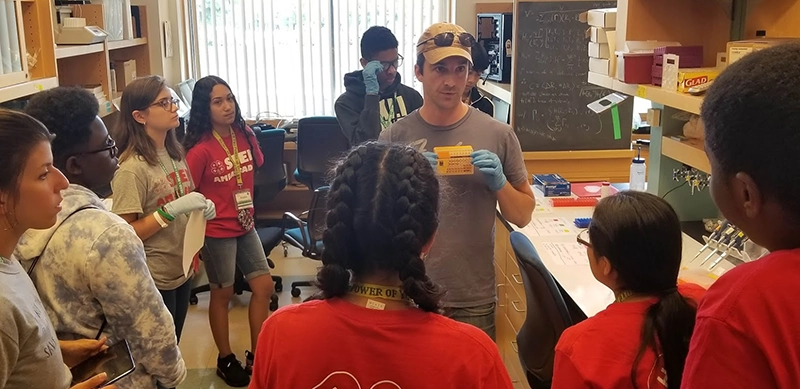
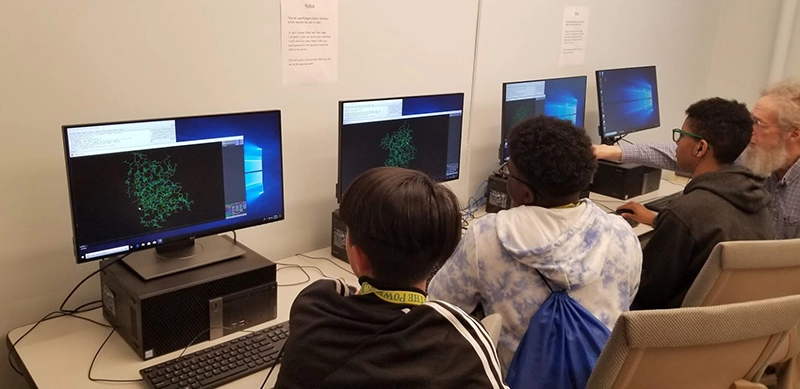
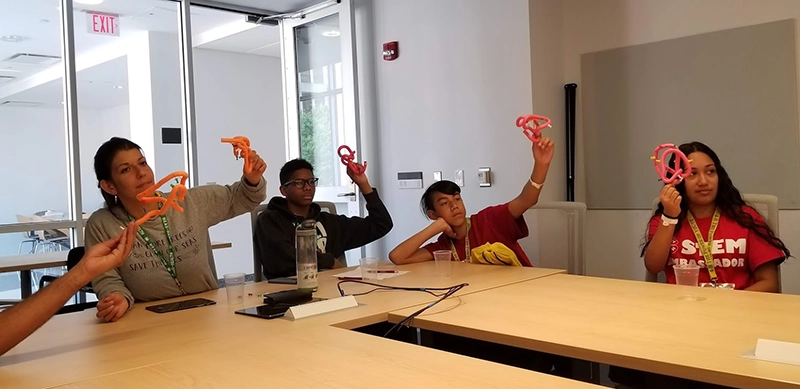
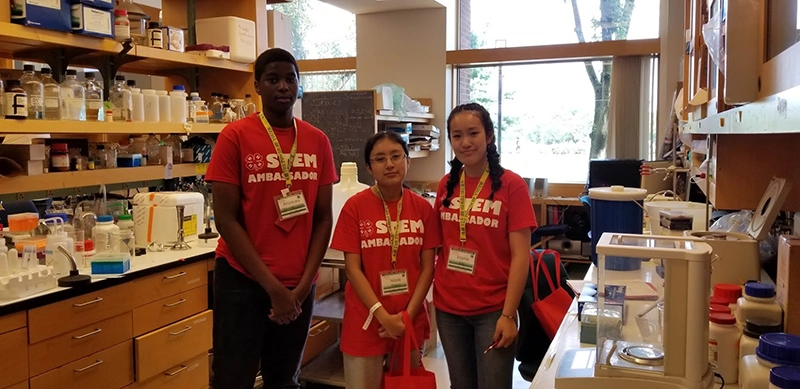
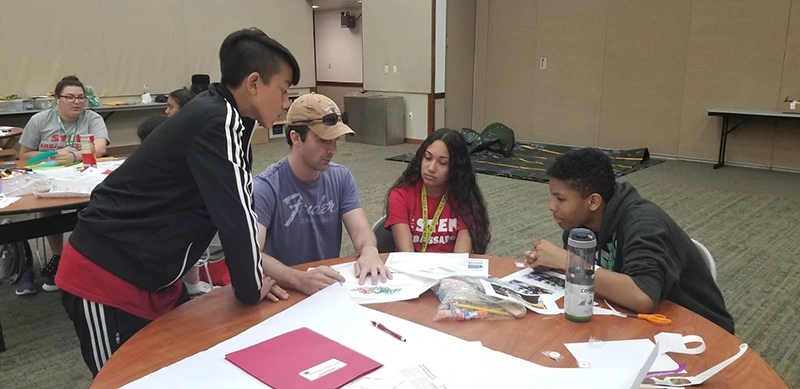
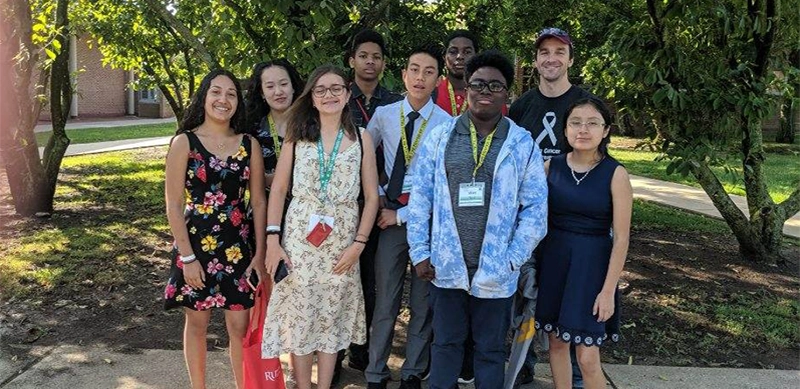
July 1, 2019
Check out our latest publication:
Mutter, A.C., Tyryshkin, A.M., Campbell, I.J., Poudel, S., Bennett, G.N., Silberg, J.J., Nanda, V. and Falkowski, P.G. (2019). De novo design of symmetric ferredoxins that shuttle electrons in vivo. Proceedings of the National Academy of Sciences, 116(29), pp.14557-14562. https://doi.org/10.1073/pnas.1905643116
June 15, 2019
ENIGMA Co-I and Executive Director of the Deep Carbon Observatory, Robert M. Hazen, has crafted a delightful exploration of carbon, entitled: Symphony in C: Carbon & the Evolution of (Almost) Everything. In this new work, he uses his knowledge of musical compositions as a muse to explain the complexities of carbon and why it is so important to life on Earth. Learn more about the book: https://deepcarbon.net/project/symphony-c
Hazen’s book is a valuable and welcome explanation of why we would do well to pay more attention to the sixth element — and of how much more remains to be discovered about its planetary role through time. Nature
Despite its abundance and importance, the location and cycling of carbon on Earth are not yet well understood. Ever-increasing atmospheric concentrations of its dioxide form lend urgency to a more accurate accounting of this element. However, it is Hazen’s enthusiasm, the string of shareable facts presented, and the introduction of so many interesting scientists that make this book such a fascinating read. Science.
June 11-13, 2019
Paul Falkowski visited with ENIGMA collaborators Oded Livnah and Yossi Paltiel of Hebrew University while in Israel.
June 6, 2019
Shaunna Morrison participated in a panel on “Subsurface Data and Machine Learning” at the National Academy of Sciences, Washington DC.
June 1, 2019
Vikas Nanda attended the Structure and Function of Natural Proteins and Maquettes: A Symposium in Honor of P. Leslie Dutton at University of Pennsylvania, Philadelphia. He presented on the “Modular origins of oxidoreductases.
May 30, 2019
Vikas Nanda presented “Co-evolution of proteins and metals“ at CUNY School of Medicine, New York , NY.
May 29-30, 2019
Paul Falkowski and Nathan Yee attended the NASA Astrobiology Institute Executive Council and Science Meeting in Greenbelt, MD.
May 24-27, 2019
Bob Hazen presented a featured public lecture on “The private lives of crystals” (exploring NAI themes of planetary evolution) at Balticon (the annual science and science fiction convention) in Baltimore.
May 15-16, 2019
Bob Hazen, Shaunna Morrison, and Donato Giovannelli attended a data science workshop, “UI Research Computing and Data Science Symposium”, where they explored advanced methods of data analysis and visualization at the University of Idaho, Moscow.
May 7-8, 2019
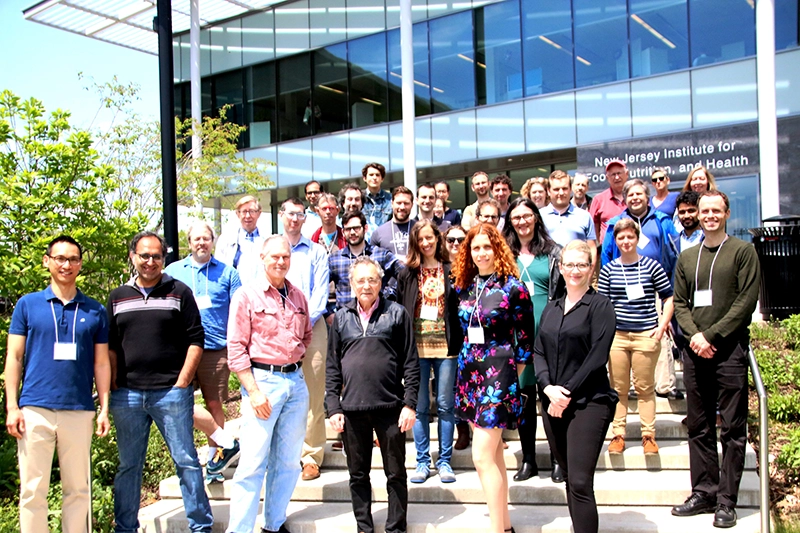
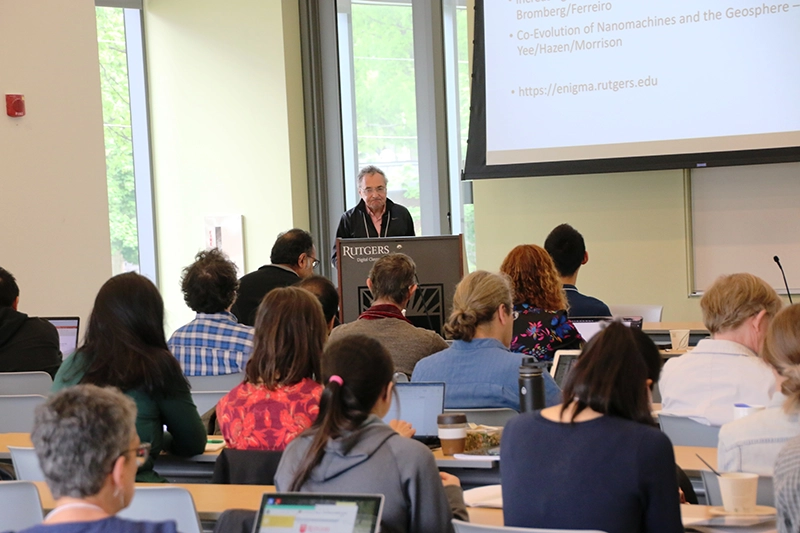
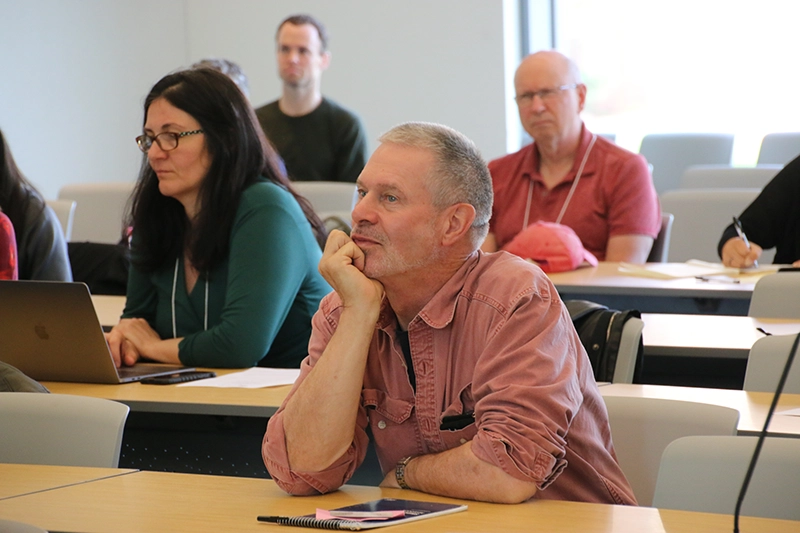
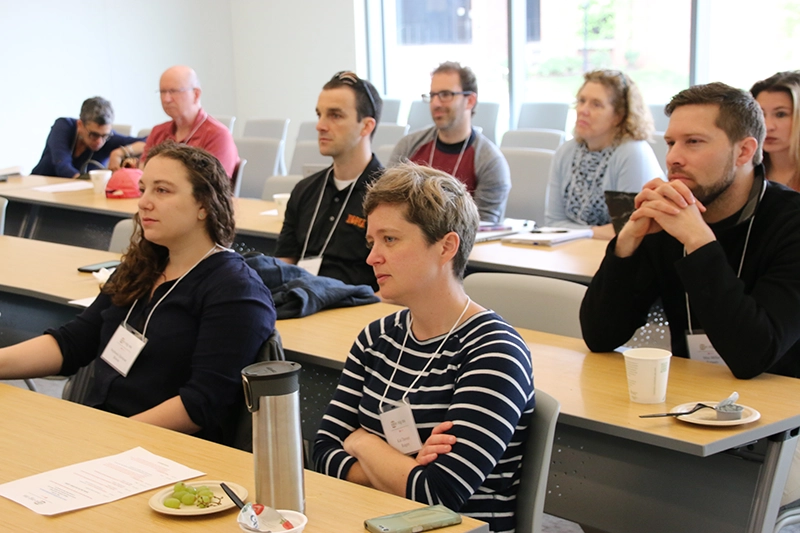
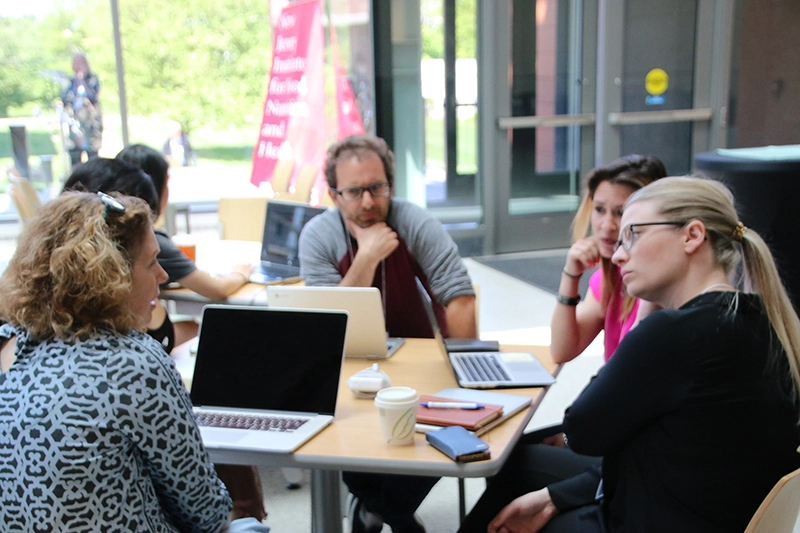
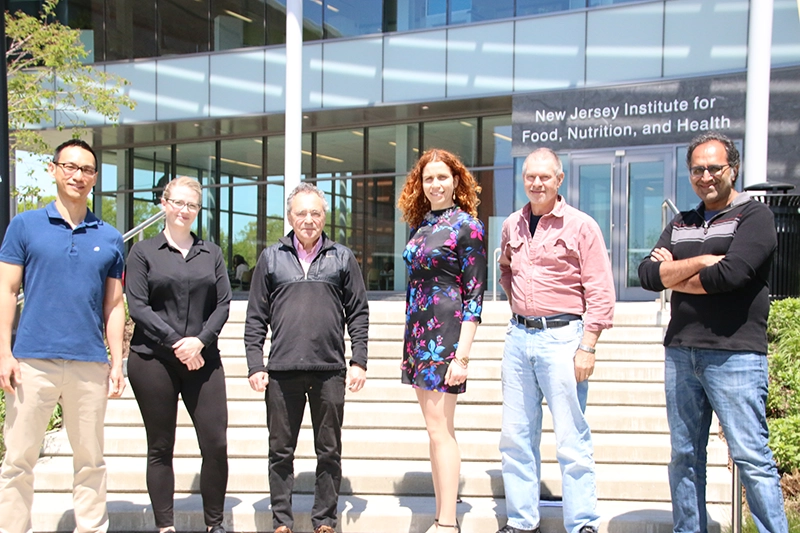
April 24, 2019
April 17-19, 2019
Bob Hazen and Shaunna Morrison attended a meeting of the Deep-time Digital Earth (DDE) founding committee to discuss how the 4D Initiative will interface with DDE in Kunshan, Suzhou, Jiangsu, China.
April 15, 2019
Merino, N., Aronson, H. S., Bojanova, D. P., Feyhl-Buska, J., Wong, M. L., Zhang, S., & Giovannelli, D. (2019). Living at the Extremes: Extremophiles and the Limits of Life in a Planetary Context. Frontiers in Microbiology, 10, 780. https://doi.org/10.3389/fmicb.2019.00780
April 14, 2019
The ENIGMA (Evolution of Nanomachines in Geospheres and Microbial Ancestors) project led by Rutgers scientists, launched another interactive K-8 Family Science Night entitled “Exploring Life on Other Planets”, at the McKinley School in downtown New Brunswick, NJ. The Family Science Night event centered on a relatable curriculum for the whole family through five different astrobiology-themed stations. Scientists from the ENIGMA project shared their experiences with this exciting and cutting-edge research in the hopes of inspiring young scientists in research.
Read the article on NJTV or watch the video below.
April 9, 2019
Bob Hazen presented “Where Minerals and Biology Collide” at the Arlen Edgar Distinguished Lecture at the Petroleum Museum in Midland, Texas.
April 4-11, 2019
Janice McDonnell, the NAI Rutgers outreach team, with post-doc’s Kenneth McGuinness, Saroj Poudel, Josh Mancini, Max Miller, and others, lead two Family Science programs entitled “Exploring Life on Other Planets” with two of our local New Brunswick K-8 schools and their families. They were a tremendous success with 150 participants at the Greater New Brunswick Charter School and 60 at McKinley Community School.
Read a great Rutgers Newsroom article on our Family Science Nights
April 4, 2019
April 2-4, 2019
Shaunna Morrison attended a NASA Mars Science Laboratory team meeting at NASA Goddard in Greenbelt.
April 2, 2019
Shaunna Morrison presented “The Age of Data: Visualizing the Revolution” in the Capital Science Evening Lecture at the Carnegie Institution for Science.
April 1, 2019
Adrienne Hoarfrost Ph.D. has joined the Bromberg lab and will be focusing on finding the relationship between bacterial microbial functionality and the corresponding trace elements found in the environment.
March 18-24, 2019
Paul Falkowski participated in the World Science Festival Brisbane 2019.
March 22, 2019
Bob Hazen presented “Evolution of minerals throughout Earth history” at the Industry-Rice Science Symposium, Rice University.
March 21-22, 2019
Shaunna Morrison presented “Data science in mineral exploration” at the Industry-Rice Earth Science Symposium 2019 (IRESS) in Houston.
March 17, 2019
The Rutgers Geology Museum is showing a new exhibit on meteorites and planetary science. Through the guidance of Rutgers University’s own resident meteorite expert, Dr. Juliane Gross (CoI) of the Earth and Planetary Sciences Department, this three-part exhibit details the formation history of our Solar System and tells the story of how stars and planets are formed.
March 17, 2019
Bob Hazen presented the “Science Sunday” lecture at Ohio State University on “Life’s Rocky Start” (origins of life).
March 6, 2019
Bob Hazen presented “Chance, Necessity, and the Origins of Life” at Janelia Farms “Dialogues of Discovery” series (Warrenton, VA).
February 27, 2019
Bob Hazen presented “The Story of Earth” at the Geological Society of London.
February 27, 2019
Paul Falkowski was interviewed by NY Times science writer Ferris Jabr.
February 26-28, 2019
Shaunna Morrison presented a keynote talk entitled “Applications of Advanced Analytics and Visualization in Mineral Systems” at the International Union of Geological Sciences (IUGS) Recognized Big Science Program Deep-time Digital Earth (DDE) in Beijing, China.
February 14-15, 2019
Visiting lecturer and ENIGMA Collaborator Oded Livnah of the Hebrew University of Jerusalem meet extensively with team members and gave a talk on “The Quest for Smart(er) Avidins: Old Dog – New Tricks” at Rutgers CABM.
February 12, 2019
Vikas Nanda presented “Evolution and engineering of protein electron transfer” at Kansas University Center for Computational Biology.
February 11, 2019
Janice McDonnell and her education and outreach team are currently providing on-going support/science communication training for the post-docs and graduate students involved in the ENIGMA project. The workshops, entitled Communication Strategies for Interdisciplinary Learning, provide participants with an overview of learning theory to help improve collaborations within and outside of their discipline.
February 11, 2019
Three more publications in press that we are looking forward to sharing:
Hazen, R.M. (2018) Earth in five reactions: Grappling with meaning and value in science. American Mineralogist, in press.
Estrada, C., Sverjensky, D.A., and Hazen, R.M. (2018) Selective adsorption of calcium-aspartate ligands onto [Mg(OH)2]-brucite: Implications for calcium in prebiotic chemistry. Astrobiology, in press.
Freiberger, M.I., Guzovsky,B.A., Wolynes, P.G., R. G., Parra, & D.U. Ferreiro. (2019). Local frustration around enzyme active sites. Proc Natl Acad Sci., in press.
February 11, 2019
February 8, 2019
Adrienne Hoarfrost Ph.D. (who will be joining Yana Bromberg’s group in April) has been awarded a NASA Astrobiology Postdoctoral Program (NPP) Fellowship.
February 4, 2019
ENIGMA Team conference call was held.
February 1, 2019
Visiting lecturers Eli Moore and Stephanie Spielman of Rowan University presented “Investigating Vanadium’s Evolving Redox Chemistry and the Expanding Total Mineral Network” at our NAI Seminar Series.
January 30, 2019
Check out new paper acknowledging the NAI:
Morrison, S., Runyon, S., & Hazen, R. (2018). The Paleomineralogy of the Hadean Eon Revisited. Life, 8(4), 64. DOI: 10.3390/life8040064
January 30, 2019
Post-doc Kenneth McGuinness presented to the team on the evolution of metalloproteins at our NAI Seminar Series.
January 24, 2019
Donato Giovannelli is starting his new position as an assistant professor at the Department of Biology of the University of Naples.
January 22, 2019
Joy Buongiorno has gone to work on her postdoctoral projects with ENIGMA Collaborator, Donato Giovannelli, at the University of Naples for several months.
January 19, 2019
January 18, 2019
Janice McDonnell recently became partner in Center for Advancing the Societal Impacts of Research (ARIS Center) to translate the importance of scientific research to the public, as part of $5.2 million NSF grant. We are delighted for Janice and her enlarged role in science education and outreach.
January 17, 2019
Shaunna also presented “Multidisciplinary approaches in Earth, life and planetary science with application of advanced analytics…” at Wayne State University.
January 15, 2019
Shaunna Morrison presented “Advanced analytics and visualization applications in Earth and planetary science” at Rutgers Earth & Planetary Science Colloquium.
January 14, 2019
As an introduction, Joy Buongiorno presented to the team “Climate change and the microbial ferrous wheel: Implications of Arctic warming on biogeochemical cycling in sediments?“
January 11, 2019
Check out new paper acknowledging the NAI:
Turjanski, P., & Ferreiro, D. U. (2018). On the Natural Structure of Amino Acid Patterns in Families of Protein Sequences. The Journal of Physical Chemistry B, 122(49), 11295-11301.
January 9, 2019
Joy Buongiorno joined the Carnegie Institute of Science team as a post-doc working on the ENIGMA project relating the expressed protein functions of extant microbial communities to their geochemical environments.
January 7, 2019
Shaunna Morrison consulted with a First Lego Robotics Team, “Galaxy Explorers,” to discuss and hone their project on “Helping astronauts sleep better by auto-adjusting their mission schedule based on their body’s circadian rhythm.” The Galaxy Explorers made it to the finals – congratulations!
December 21, 2018
Post-doc Joshua Mancini presented to the team on primordial folds of iron sulfur proteins at our Rutgers NAI Seminar Series.
December 11, 2018
CNN: “Scientists discover billions of tons of ‘zombie’ bacteria inhabits the ground beneath our feet” article features work by Deep Carbon Observatory (DCO).
https://www.cnn.com/2018/12/11/world/deep-carbon-observatory-zombie-carbon-intl/index.html
December 10, 2018
AGU 2018 Fall Meeting December 10-14, Washington D.C.:
Bob Hazen presented three talks:
- “Data-Driven Discovery in Biogeoscience: Past, Present, and Future“
- “Data-Driven Discovery and the Rise of the Collaborative Culture of Data Sharing (Invited) “
- “Natural Kind Cluster Analysis of Mineral Chemistry Data: A New Approach to Mineral Classification”
December 9, 2018
Bob Hazen and Shaunna Morrison attended Deep Carbon Observatory Virtual Reality Data Visualization workshop.
December 7, 2018
Shaunna Morrison additionally participated in an outreach program with high school students at Virginia Episcopal School, presenting her “Mars Science Laboratory” lecture.
December 6, 2018
Shaunna Morrison presented as part of an outreach program with 4H Homeschool groups, “Mars Science Laboratory” lecture.
November 20, 2018
Visiting lecturer John Goldbeck of Penn State meet with NAI team members and gave a talk on “The Influence of the Great Oxygenation Event on the Structure and Function of Type I Photosynthetic Reaction Centers” at Rutgers CABM.
November 16, 2018
Paul Falkowski participated in Rutgers STEMcosR outreach programing to high school and community college students. Keynote lecture was “Light to Life”.
November 9, 2018
Post-doc Andrew Mutter presented his talk to the team on ferredoxin scaffolds at our Rutgers NAI Seminar Series.
November 8, 2018
Yana Bromberg presented “Forget their names: understanding the microbiome without focusing on individual microbes“at Emory University.
November 7, 2018
Paul Falkowski presented “Life’s engines: How microbes made Earth habitable” as part of Old Dominion University’s College of Sciences’ Dean’s Lecture Series.
November 7, 2018
Vikas Nanda presented “Structure-guided design of peptides” at 2018 Symposium on Protein Engineering and Molecular Design of Industrial Enzymes, Jiangnan University, Wuxi, Jiangsu Province, China.
November 4, 2018
GSA 2018 Annual Meeting, Indianapolis:
Bob Hazen was chair with Ed Grew of University of Maine of session on mineral evolution and ecology. Hazen presented “Natural kind clustering of planetary materials: A new data-driven approach to mineral classification”.
At same GSA 2018 session keynote was presented by Shaunna Morrison on “Advanced analytical and visualization techniques applied to mineral evolution and ecology.“ Daniel Hummer, Hazen, Morrison, and others: “Ecology and evolution of manganese minerals: Implications for the redox history of Earth and life“. Grethe Hystad, Hazen, Morrison, and others: “Future and current approaches for modeling the distribution of minerals on Earth and other planets”.
In other GSA 2018 sessions, Shaunna Morrison had a Keynote: “Applications in comparative planetology: Advanced analytics and visualization of mineral systems” and Grethe Hystad, Hazen, Morrison, and others: “Estimating Earth’s undiscovered mineralogical diversity using a Bayesian approach”.
November 1, 2018
Check out new paper:
Loell, Kaiser, and Vikas Nanda. “Marginal protein stability drives subcellular proteome isoelectric point.” Proceedings of the National Academy of Sciences (2018): 201809098.
http://www.pnas.org/content/early/2018/10/31/1809098115.short
October 26, 2018
Rutgers NAI Seminar Series: Saroj Poudel presented his work on the evolution of metal binding proteins.
October 25, 2018
Vikas Nanda presented “Evolution and Engineering of Protein Electron Transfer” at Princeton University.
October 25, 2018
Paul Falkowski presented “Light to Life: The coevolution of the geosphere and biosphere “at UC Berkeley.
October 22, 2018
Paul Falkowski presented the Storer Lecture at UC Davis on “The Origin and Emergence of Global Coupled Biogeochemical Cycles.”
October 17, 2018
NAI ENIGMA team and EBME lab members Paul Falkowski, Vikas Nanda, Saroj Poudel, Joshua Mancini, Kenneth McGuinness, Andrew Mutter, Douglass Pike, Winnie Liu, and Liti Haramaty visited the NASA Goddard Space Flight Center (GSFC) and Goddard Center for Astrobiology (GCA) for collaborative meetings and a tour.
October 16, 2018
Paul Falkowski presented “Legos of Life” at the Flatiron Institute in NYC.
October 14, 2018
Bob Hazen also presented at the Foundation for Applied Molecular Evolution’s Origin’s of Life Workshop in Atlanta October 14-17th.
October 12, 2018
Rutgers NAI Seminar Series: Doctoral student Douglass Pike presented his work in iron-sulfur peptide design.
October 9, 2018
Vikas Nanda presented “Evolution and Engineering of Protein Electron Transfer” at Syracuse University Department of Chemistry.
October 6, 2018
Post-doc Douglas Pike presented a poster on “De novo design of a primitive ferredoxin” at the 32nd Gibbs Conference on Biological Thermodynamics in Carbondale, IL October 6-9th.
October 5, 2018
Bob Hazen presented the keynote address, “Chance, necessity, and the origins of life” at the Center for the Study of Origins, University of Colorado Boulder.
October 3, 2018
Shaunna Morrison presented “Advanced analytics and visualization of mineral systems” and “Roving the Red Planet: Exploring the habitability and geologic history of Mars” at University of Toronto Seminar, Toronto, Canada, October 3rd-4th.
October 1, 2018
ENIGMA Team leaders meeting held with Paul Falkowski, Nathan Yee, Yana Bromberg, Vikas Nanda, Bob Hazen, and Shaunna Morrison.
September 24, 2018
Bob Hazen participated in the Mars Science Laboratory (Curiosity) team meeting at CalTech in Pasadena, Ca. September 24 -26th.
September 21, 2018
Bob Hazen presented a seminar at Ohio State entitled “Deep-time data-driven discovery and the co-evolution of the geosphere and biosphere”.
September 20, 2018
ENGIMA welcomes new team members:
Joshua Mancini, Ph.D. joins us as a postdoctoral fellow exploring the primordial folds of iron sulfur proteins.
Saroj Poudel, Ph.D. joins us as a Rutgers EOAS Planetary Habitability Postdoctoral Fellow to study origins and evolution of redox catalysts.
Kenneth McGuinness, Ph.D. joins us as a postdoctoral fellow to study the evolution of redox enzymes using machine learning approaches.
September 7, 2018
de novo designed 4Fe-4S binding peptide capable of robust electron transfer” paper featured in Forbes article “A Tiny Protein Like This May Have Kick-Started Life On Earth”.
This paper was also featured in the following:
Astrobioogy Magazine:
Science Daily:
https://www.sciencedaily.com/releases/2018/08/180830180101.htm
September 5, 2018
Check out new paper “Minimal hetereochiral de novo designed 4Fe-4S binding peptide capable of robust electron transfer” in the Journal of the American Chemical Society. Kim, J.D., Pike, D.H., Tyryshkin, A.M., Swapna, G.V.T., Raanan, H., Montelione, G.T., Nanda, V. and Falkowski, P.G. https://pubs.acs.org/doi/10.1021/jacs.8b07553
September 3, 2018
Vikas Nanda presented at Ursinus College Chemistry Seminar Series “What did proteins look like 4,000,000,000 years ago?”.
September 3, 2018
Paul Falkowski to serve as an advisor for new NASA Center for Utilization of Biological Engineering in Space (CUBES).
September 3, 2018
Mihaela Glamoclija joined COSPAR “Sample Safety Assessment Protocol (SSAP) Working Group” to assess the safety of samples from Mars. The final product of these working group activities will be published and will feed into the current NASA-ESA activities on Mars sample return.
September 3, 2018
Mihaela Glamoclija and Graduate Student Ashley Murphy have returned from Morocco where they sampled Precambrian and Cambrian carbonates for the Europlanet (http://www.europlanet-2020-ri.eu) funded project “Moroccan Early Animal Record from Precambrian – Cambrian Transient Environments and its Relevance for Life Detection on Mars”. Glamoclija group is going to combine laboratory based research and data mining to learn in more details about formation of new habitable environments as recorded in Ediacaran period of Moroccan Anti-Atlas mountains and the early animal evolution from the Cambrian sequences.
August 20, 2018
Postdocs Shaunna Morrison, Chao Liu, Allison Enright, and Graduate Student Ashley Murphy attended the GeoDeepDive Workshop in Madison, Wisconsin from August 20 to 21. Go to (https://geodeepdive.org/workshop2018/) to learn how to explore and handle the data from big data depository such as GeoDeepDive.
August 16, 2018
At the University of Sydney, Australian National Science Week Special Seminars, Robert Hazen gave a lecture on “The co-evolution of rocks and life: data-driven insights from ‘The New Mineralogy'”, and Shaunna Morrison presented “Mars Science Laboratory: Exploring the habitability and geologic history of the red planet.”
August 15, 2018
Robert Hazen presented at the International Mineralogical Association Conference XXII in Melbourne “A revised (upwards) estimate of Earth’s missing minerals,” Monday, August 13, 2018 and “Data-driven discovery in <strong>mineralogy: setting the stage for MSA’s second century,”.
August 15, 2018
Shaunna Morrison gave another Keynote: “In situ mineralogical observations on Mars: Discoveries by the CheMin X-ray diffraction instrument,”.
August 13, 2018
Nathan Yee gave a Keynote lecture at the Goldschmidt Conference in Boston entitled: “The Role of Cellular Cysteine in Microbe-Metal Interactions”.
August 13, 2018
Shaunna Morrison gave Keynote at International Mineralogical Association Conference XXII in Melbourne, Australia: “Recent advances in mineral evolution and mineral ecology via big data analytics and visualization”.
August 12, 2018
Graduate Student, Winnie Liu, presented her work on photo-oxidation of Mn-containing minerals at the 2018 Goldschmidt Conference in Boston August 12-17, 2018. Poster entitled “Abiotic Conversion of Rhodochrosite to Mn Oxides by Ultraviolet Light”.
July 12, 2018
Rutgers graduate student, Benjamin Jelen, was invited to serve as Executive Secretary for the Early Metabolisms panel of the Exobiology 2018 review August 5-10, 2018> in San Diego.
June 11, 2018
Paul Falkowski was interviewed on NJTV NEWS providing background and commentary into NASA’s recent discoveries on Mars and recent Science papers on complex organic molecules and seasonal methane on Mars.
Life on Mars? Rutgers professor breaks down NASA’s most recent discovery
June 2, 2018
Several members of the team including Yana Bromberg, Donato Giovannelli, Vik Nanda, and Nathan Yee attended a “4D Data Workshop” hosted by team member Robert Hazen of the Carnegie Institute.
June 1, 2018
Three members of the team, Paul Falkowski, Vik Nanda, and Nathan Yee attended a workshop on light driven catalysis hosted by CIFAR.


